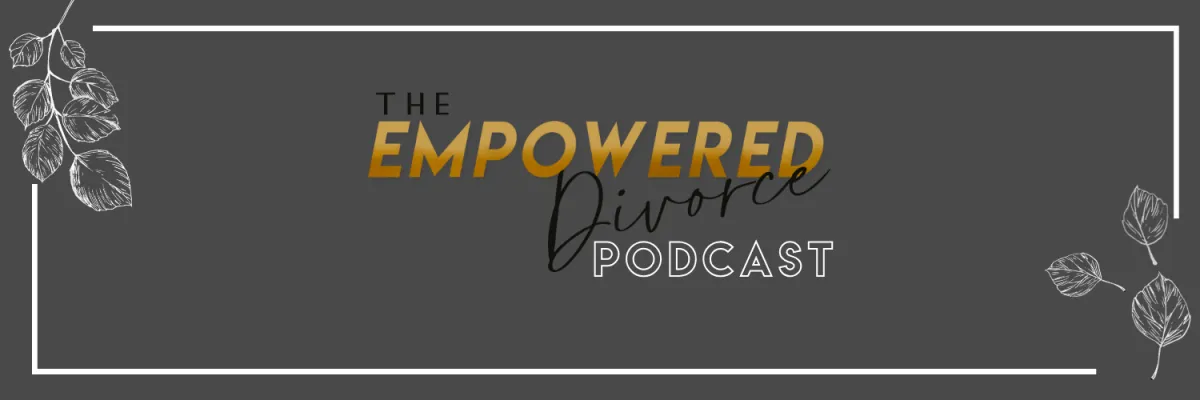
New Episodes Every Thursday
We're talking about an emotional divorce today, but I just wanna validate one of the deepest injuries that a lot of my clients have experienced, and those who have experienced a lifesaving divorce have had a lot of injury in that emotional intimacy.
There wasn't any, it was so infiltrated with emotional abuse, manipulation, gaslighting, emotional immaturity from the partner.
How are you? Time for a body check. Time for a break. Time for a pause, because a lot of you don't take that time. So you've clicked on this episode.
You've taken time to listen to me. Let's take a little time to listen to you. Listen to your body.
I wanna talk about something that almost every single woman I work with struggles with after betrayal and divorce, and that is the voice of the inner critic.
You know, the one, the part of you that says you should have seen this coming, or if you had been prettier, smarter, more sexual.
This is an episode that I am sharing with you. It's a recording from September's live Q and A session, what I had shared with everybody in the beginning of that session, which is what I do.
If you haven't been to one of my live Q and A’s, I always teach something, share something, offer something.
Sometimes in life, as we go about our daily experiences, the little things we do that seem to have no point end up teaching us something meaningful.
Sometimes we discover purpose, and sometimes we even uncover unexpected healing tools. That’s what happened to me this past week.
What does real self-love look like after betrayal and a lie-saving divorce? It's not bubble baths and retail therapy. It's not pretending you're fine.
In this episode, I share five powerful ways you can start practicing self-love today in the middle of healing. These tools go beyond surface-level self-care and get to the root of rebuilding our relationship with yourself -through alignment, boundaries, resilience, and compassion.
What does real self-love look like after betrayal and a lie-saving divorce? It's not bubble baths and retail therapy. It's not pretending you're fine.
In this episode, I share five powerful ways you can start practicing self-love today in the middle of healing. These tools go beyond surface-level self-care and get to the root of rebuilding our relationship with yourself -through alignment, boundaries, resilience, and compassion.
In this episode, I'm inviting you into the yoga studio with me - kind of. I recently did an isometric yoga workout, and whoa, it became the perfect metaphor for healing after betrayal.
You'll hear why real nervous system healing doesn't mean you're calm all the time, and how building emotional and somatic strength is often quiet, shaky, and invisible - but life-changing.
What do you do when the life you imagined completely falls apart, when the betrayal, divorce, and the silent grief of what could have been knocks the wind out of you, and suddenly you're not where you thought you'd be.
In this episode, I take you into that tender space and how you can still find agency, purpose, and even color again.
You are someone who notices everything, who feels what other people feel, who carried the weight of your marriage, always trying to fix, soothe, make it work. This episode is for you where many of you empathy becomes survival. But it also becomes a trap. And now you may even hate that you are so empathetic.
It can feel like a flaw instead of a gift. But what if I told you that your empathy isn't the problem?
“Amie, does it really get better?”
In this episode, I’m answering her directly—and tenderly.
If you're stuck in that foggy, aching space where hope feels out of reach, this conversation is for you. I’m not here to offer toxic positivity or polished promises. I’m here to speak the truth: what better actually looks like after betrayal, why it often doesn't feel believable at first, and how you can still take steps forward—even if you’re not fully convinced yet.
You didn't ask to do this healing work but you are doing it anyways- THAT is going to make you resilient! What if the idea of self-love just makes you tired? Or even angry? What if you're still trying to bloom in the aftermath of betrayal?
In this final episode of the Summer Song Series, I'm diving deep into two songs that speak directly to the ras truth of healing after betrayal trauma-Self Love by Avery Anna and Resilient by Katy Perry.
Today’s episode is for the woman who stayed far too long in a relationship where she was never truly seen. Where she loved deeply, showed up fully, and kept hoping that maybe one day… he’d really know her.
But that day never came.
This episode is about the ache of being emotionally invisible—and the beauty of finally turning inward and saying, “I see me now.”
Welcome to my Summer Song Series! This month I'm sharing songs that speak directly to the heart of healing after betrayal, abuse, and life-saving divorce. These songs aren't just background noise-they're lyrical lifelines. Songs that help us access emotions, reclaim our stories, and remember who we really are.
We're kicking off this series with two powerful anthems from one of my favorite artists, Sarah Reeves: "Get Back Your Fight" & "More Than Enough"
Check out Sarah Reeves on Spotify: Sarah Reeves Artist Page
Happy 4th of July, my amazing listeners! I’m re-airing one of my favorite episodes today—The Freedom to Choose—because this message hits deep, especially if you’ve experienced betrayal, abuse, or a life-saving divorce.
While we celebrate external freedoms in our country, I want to invite you to reflect on your internal freedom—the kind that no one can take away. The power to choose how you think, feel, and respond. The ability to go inward, access your emotions, and reclaim agency even when life has stripped so much away.
Have you been caught in the loop of everything you've lost since the betrayal or your life-saving divorce? It’s so easy for our brains—especially when we’re still in survival mode—to focus on what’s gone and what may never be again.
In this episode, I want to gently shift that lens with you. I’ll help you see that healing and growth don’t come from ignoring your pain—they come from reclaiming what’s still yours. Your strength. Your voice. Your wisdom. Even if those parts feel buried right now.
I’ll talk about how trauma wires the brain to detect threat, how your nervous system plays a huge role in your healing, and how post-traumatic growth becomes possible when you start to notice what you haven’t lost. I also share a few personal stories that shaped this journey for me.
If you’ve ever wondered why calm feels uncomfortable—or even wrong—after living in chaos for so long, you’re not alone. In this episode, I’m talking about what happens when your nervous system gets wired to expect betrayal, emotional abuse, and survival mode… and how real peace can actually feel threatening at first. I’ll share a personal story from my own healing and walk you through why this happens and what to do about it.
Whether you're post-divorce or still in the thick of it, this is for you if you're ready to stop mistaking the absence of chaos for true peace—and start actually feeling safe in your body again.
Feeling overwhelmed or stuck in survival mode? In this episode, I share why creating a simple, intentional healing routine can help calm your nervous system, ease ruminating thoughts, and rebuild a sense of safety after betrayal and divorce.
I diving deep into one of the most painful emotional experiences—rejection—and how it uniquely impacts women healing from betrayal trauma, emotional abuse, and divorce. This isn’t just about getting ghosted or overlooked. For betrayed women, rejection is a body-level experience, echoing decades-old wounds and signaling danger to the nervous system—even when there’s no immediate threat.
If the thought of dating again terrifies you… if you shrink yourself to avoid conflict… if you find yourself over-giving, over-performing, or preemptively rejecting yourself—this episode is for you.I’ll walk you through the neuroscience, the trauma patterns, and the deeper truths about why rejection hits so hard and how you can begin to change your relationship with it, gently and powerfully.
Why does healing after betrayal feel so exhausting? Why does it take so long? In this episode, I unpack what’s really underneath the question, “Why is this so hard?”—and why trying to rush your healing is actually working against you.
If you’ve ever thought, “I should be over this by now” or “Maybe this is just how life is now,” I speak directly to that part of you. I’ll help you reframe hard not as a sign that you're broken—but as a normal part of the healing journey after betrayal, abuse, and divorce. We’ll talk about grief, trauma responses, and the difference between acceptance and apathy, so you can stop bracing for the next hard thing and start reclaiming your agency.
This episode is your reminder: you're not failing at healing—you're just human.
In this deeply personal episode, I’m opening up about the kind of grief no one really talks about—lonely grief after divorce. Whether it’s parenting alone, sitting through holidays that don’t feel the same, grieving anniversaries in silence, or watching your kids grow up without a partner to share the emotional weight, this kind of grief is real and valid. If you’ve ever felt unseen in your grief—especially as a divorced mom navigating co-parenting, blended families, or doing it all on your own—this episode is for you.
I’ll share my own stories of what it looks like to grieve in the quiet moments, from hallway tears to high school graduations, and validate that even if you’re not part of a “we” anymore, you are not alone in your loneliness. This is a must-listen for anyone healing from divorce, betrayal, or the loss of the life they thought they’d have.
In this episode, I’m sharing a powerful teaching from one of my live Q&A sessions where we unpacked the real reasons grief still shows up—even when you're the one who initiated the divorce or knew it was the right thing. If you’ve ever found yourself asking, Why am I still grieving? Shouldn’t I be over this by now?—this is the conversation you need.
In this empowering episode, I dive deep into the profound differences between a typical divorce and a life-saving divorce. If you’ve ever felt guilt, confusion, or shame because your divorce doesn’t look like the amicable, co-parenting stories on social media, this episode is for you.
I explore why leaving an abusive, toxic, or harmful relationship is not a failure but an act of courage and self-preservation.
Discover why the grief, healing process, and rebuilding after a life-saving divorce are so unique—and why it's okay if your journey doesn’t look like anyone else’s.
In this episode, I am joined by Tony Overbay, a licensed marriage and family therapist and host of the Virtual Couch and Waking Up to Narcissism podcasts. We explore the complexities of breaking free from relationships with narcissists, focusing on the challenges and strategies to regain emotional autonomy. We delve into the concepts of differentiation, trauma bonding, and the importance of self-validation. Tony shares his insights on how narcissistic behaviors escalate during divorce and separation, and how to maintain a sense of self amid these challenges. This episode is divided into two parts, with the continuation airing next week.
In this episode, I am joined by Tony Overbay, a licensed marriage and family therapist and host of the Virtual Couch and Waking Up to Narcissism podcasts. We explore the complexities of breaking free from relationships with narcissists, focusing on the challenges and strategies to regain emotional autonomy. We delve into the concepts of differentiation, trauma bonding, and the importance of self-validation. Tony shares his insights on how narcissistic behaviors escalate during divorce and separation, and how to maintain a sense of self amid these challenges. This episode is divided into two parts, with the continuation airing next week.
Normal grief for any human is hard and unwanted. When you have had previous trauma, chronic pain or metal illness such as PTSD, anxiety or other chronic issues and then you experience betrayal In your primary relationship, abuse and divorce, you most likely are suffering from complicated grief.
Today I share some thoughts around what this can look like, and offer a few things you can practice today to help you move through this type of grief.
What does it look like, how do you navigate it and how long will this last? Join me today as I share thoughts about grief, and how to process it in a healthy way that allows it to actually move through you. We can grieve empoweringly ( I created a new word) yes, you can allow grief to be an empowering experience IN the grief when you stop making yourself wrong for grieving, and when you stop thinking that you shouldn't be still grieving.
Just like his affair and sexual addiction had nothing to do with you, neither does his moving on have to do with you. Whats often happening here, underneath it all, is we are making this mean something about ourselves intrinsically.
Meaning, we are connecting our worth and value and enoughness to this- so it hurts. Our thoughts might be- I wasn't good enough for him to choose- whats wrong with me that he wouldn't do the work to be healthy for me but he will for her (which i will highly argue that he' healthy) your brain might be offering you the thoughts that he gets to have a
happily ever after and you are now alone forever.
This is a decision that only YOU can make, but I want to help you make that decision from a place of empowerment rather than fear. Helping you become more aware of the thoughts that your brain is offering you to keep you stuck. Today I offer a few thoughts to consider and journal to help YOU make this decision.
Fear around personal finances are one of the top reasons women stay in an unhealthy destructive marriage. LOTS of fears right? Like, debilitating for some of you. So whether you are trying to figure out how you are going to do this on your own, or you are on your own now and feeling the pressure financially I got your back!
I have invited my long time friend and financial nerd ( she knows I love her) Melissa Frye to help you navigate your finances from a place of empowerment. She too is experiencing divorce so she gets it, and she is on your team too because women need women.
"Even when it would seem to the outsiders looking in that we were ok, I was waiting for the ball to drop again. I was constantly in panic that I would find something out again around his addiction or affair, this constant state of instability was my life. And because I was not aware of or had skills of emotional regulation, and I wasn't aware that I need to self care and focus on me and heal me and have boundaries, so I was participating in the cycle of abuse and unhealthy by not self regulating by not having healthy skills to cope or heal."
Do you resonate with this? If you experienced this kind of survival mode in your marriage, and then experienced a difficult divorce, you have probably become very "comfortable" in survival mode. So slowing down, stopping, and feeling a sense of calm can feel weird and wrong.
You are not alone. Women are experiencing extremely difficult divorces and often feel like they are the only ones going through hell. This series of Women Supporting Women is to help you see that you are not the only one, that you are not crazy and that you too can heal and move forward from a place of empowerment.
Hear how Jill navigated an abusive marriage and went from feeling powerless and fearful to empowered and thriving. You can too!
Your divorce decree is only step one in moving into a new life after divorce. The real divorce is the cutting of the emotional, mental and physical ties that still bind you to your ex-husband. This is the real work of divorce recovery: becoming an empowered woman possessed of confidence, self-esteem, and an enthusiasm for life and most important, a complete break from the emotional trauma and turmoil that led to your divorce in the first place.Join me today as I share 2 tools to work on to help you get an emotional divorce and start having an EMPOWERED DIVORCE.
Divorce is hard enough to navigate, but add all the fears, worries and unknowns to the m ix and you are suffering m ore than necessary.
The Empowered Divorce Podcast is about helping women navigate divorce and post divorce life from a place of empowerment rather than feeling powerless. To help you heal and move forward. Divorcing because of betrayal trauma and or abuse is trickier that other divorces. Usually there isn't closer and never will be, so moving on can be harder and it's easy to get stuck.
This podcast will also offer the support of women as you will hear how women like you have also felt debilitating fear and healing from betrayal, take steps into empowerment. You will be inspired by their faith and it will help you to not feel alone and know that you too can take that step forward as well.
Women need women in this journey so Amie is determined to get the conversations going and help women to step out of shame for divorce that can often feel so thick in a christian culture.
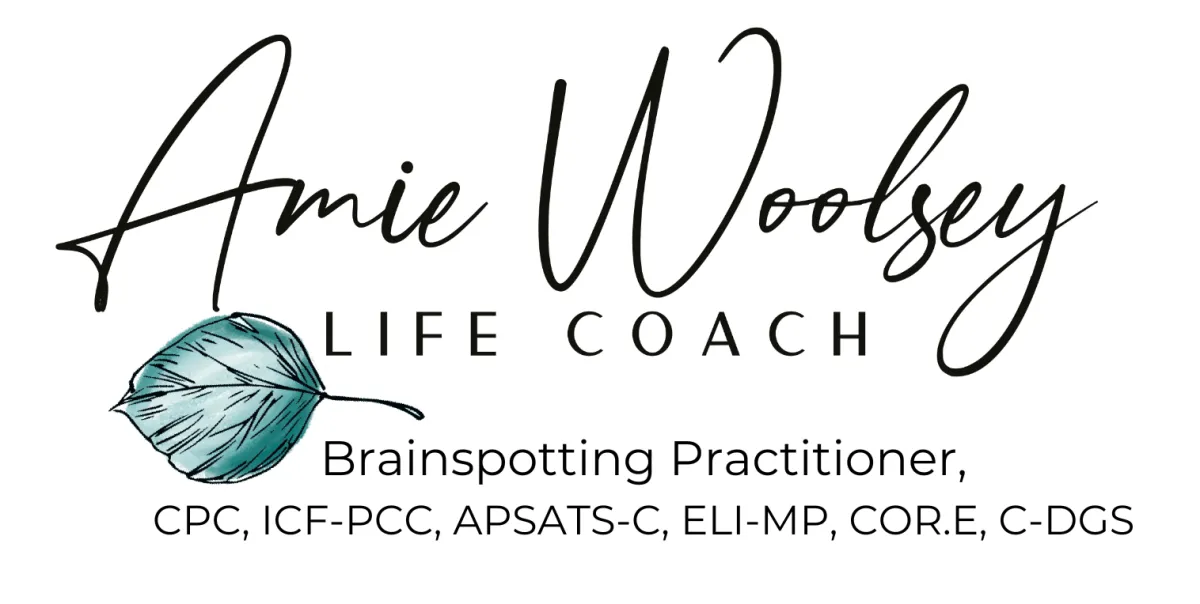
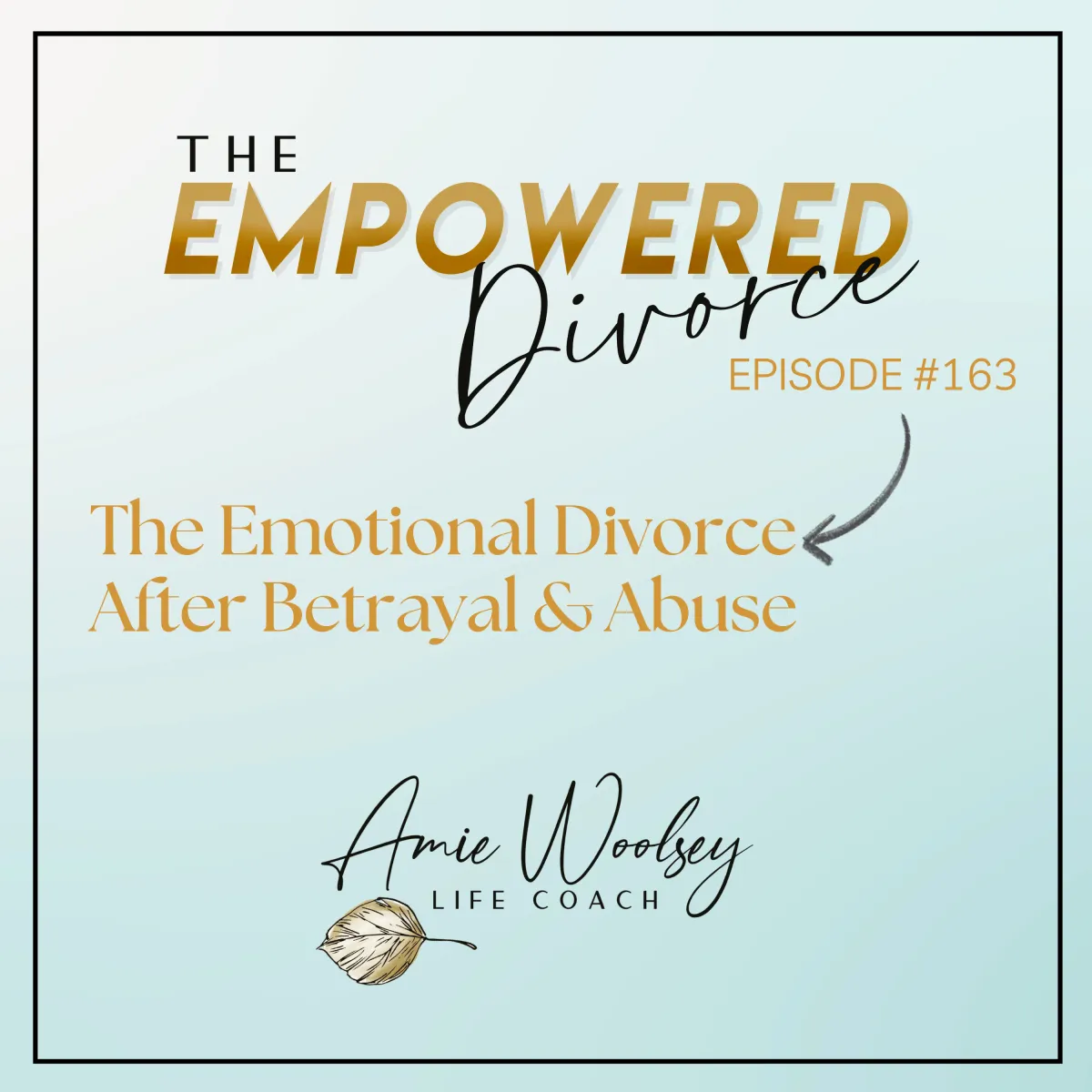
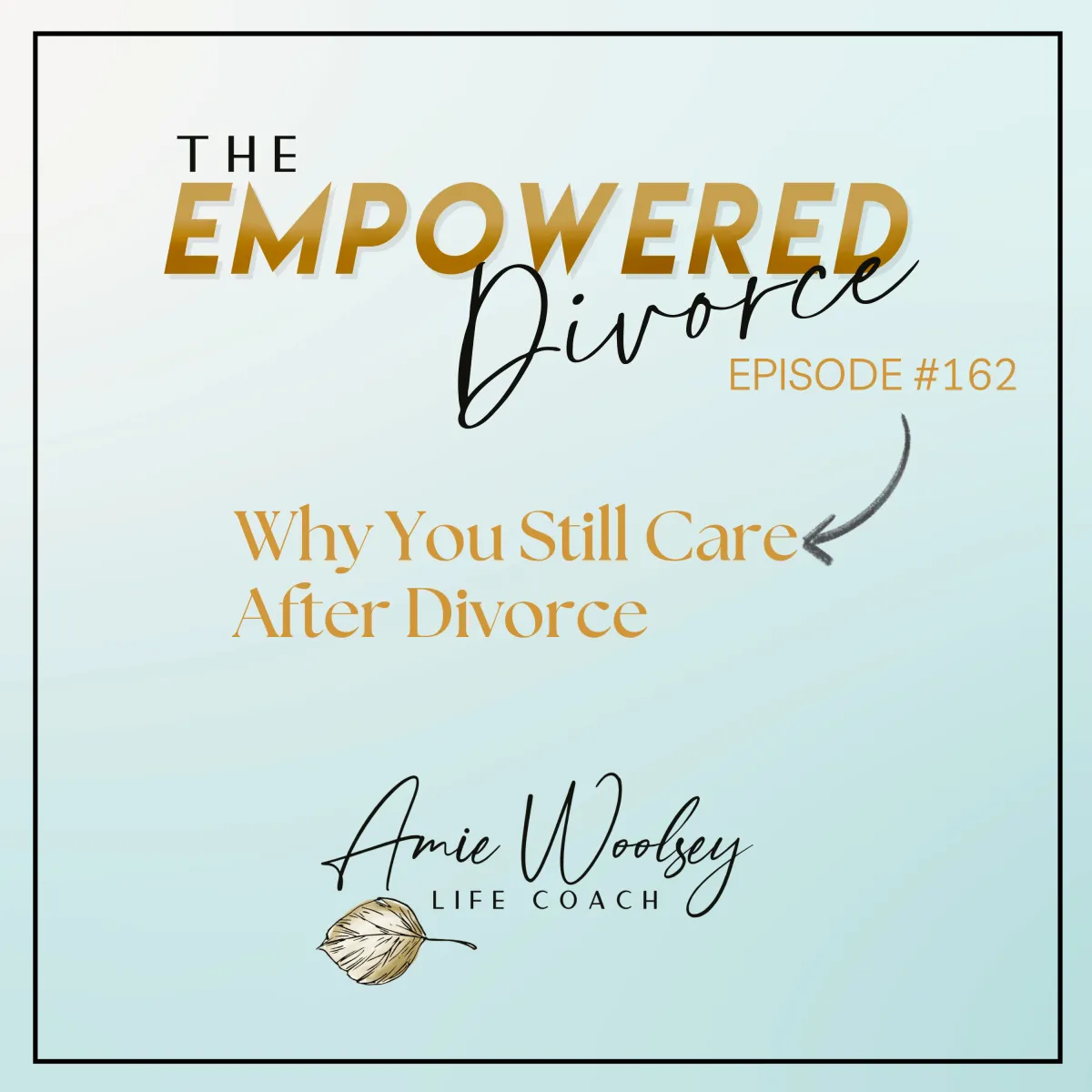
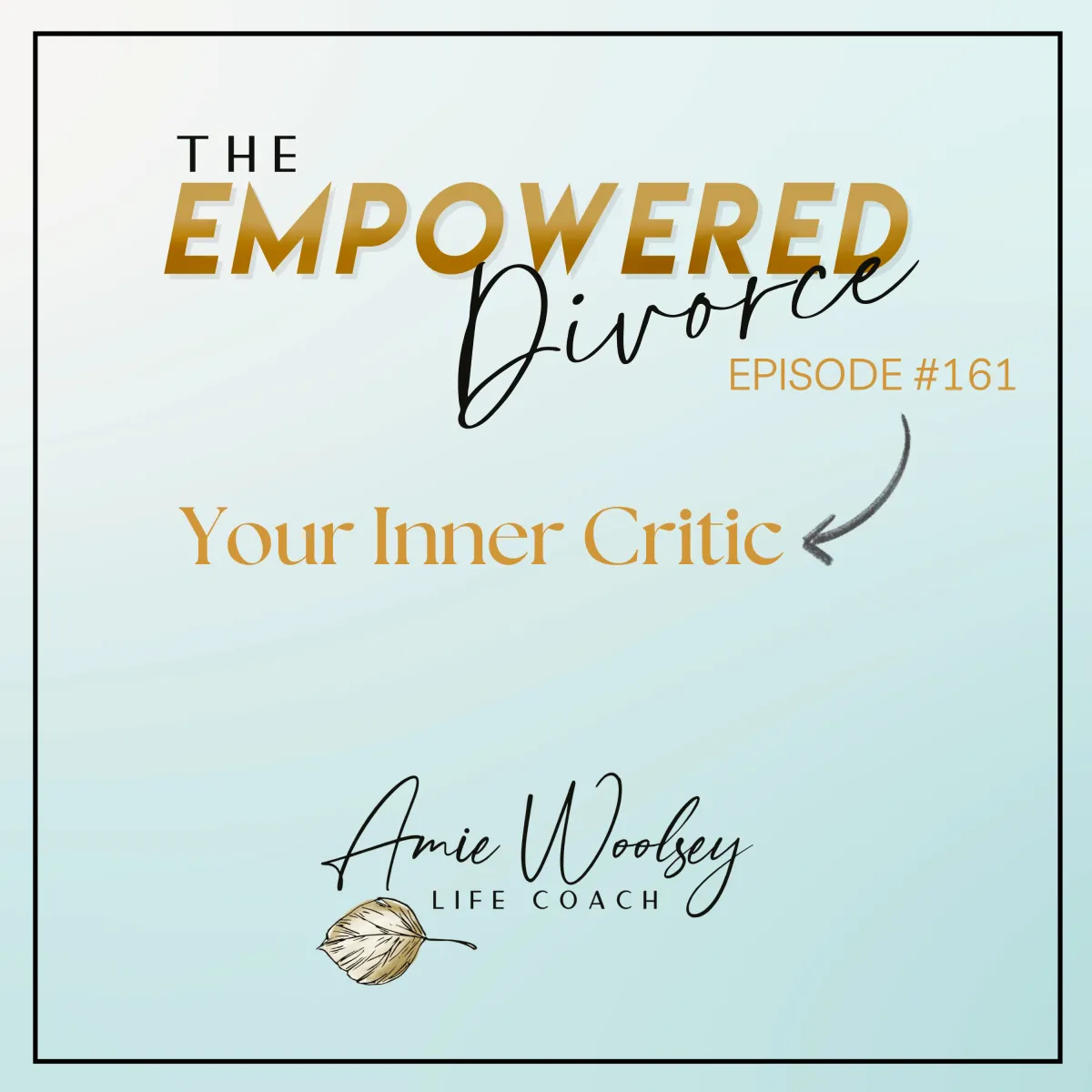
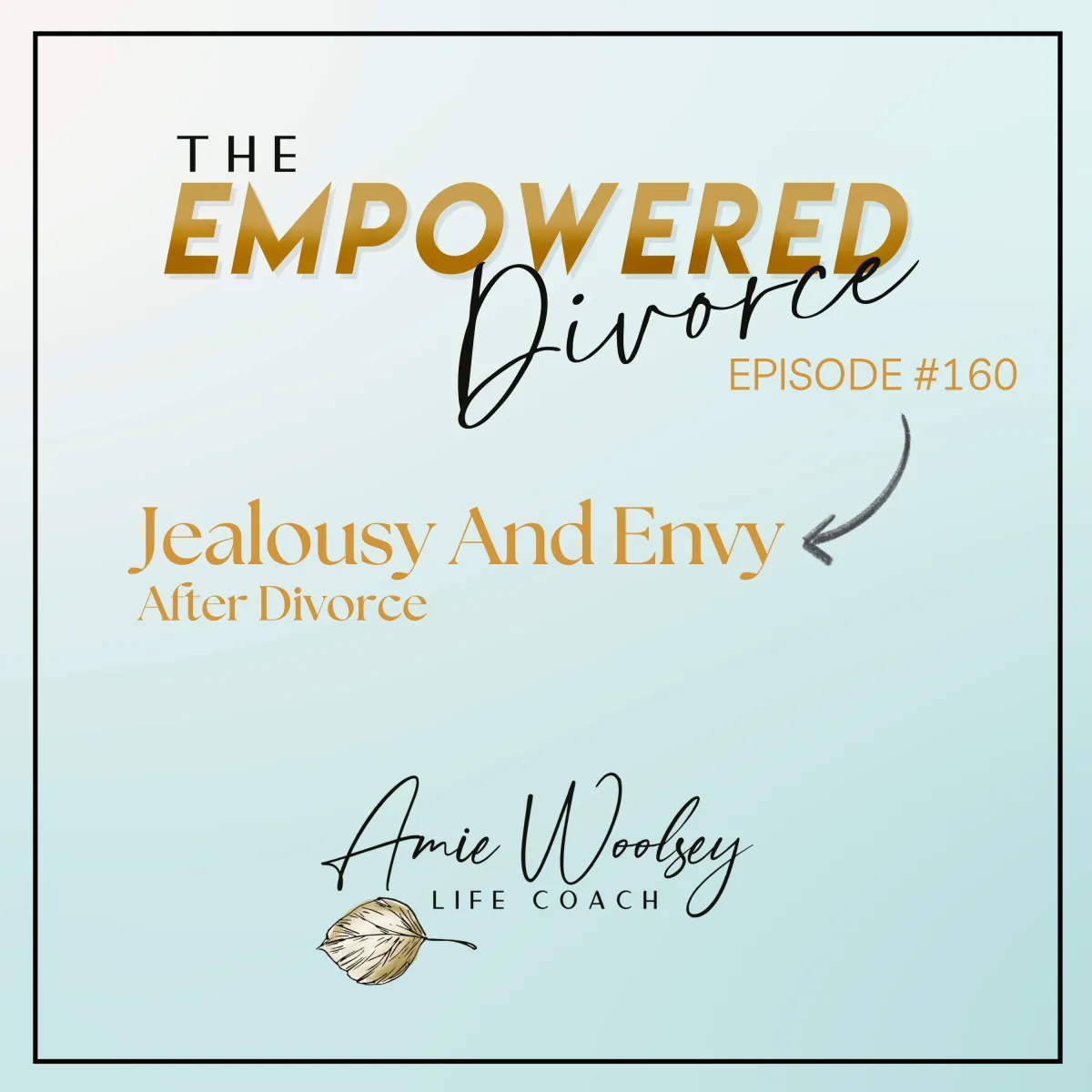
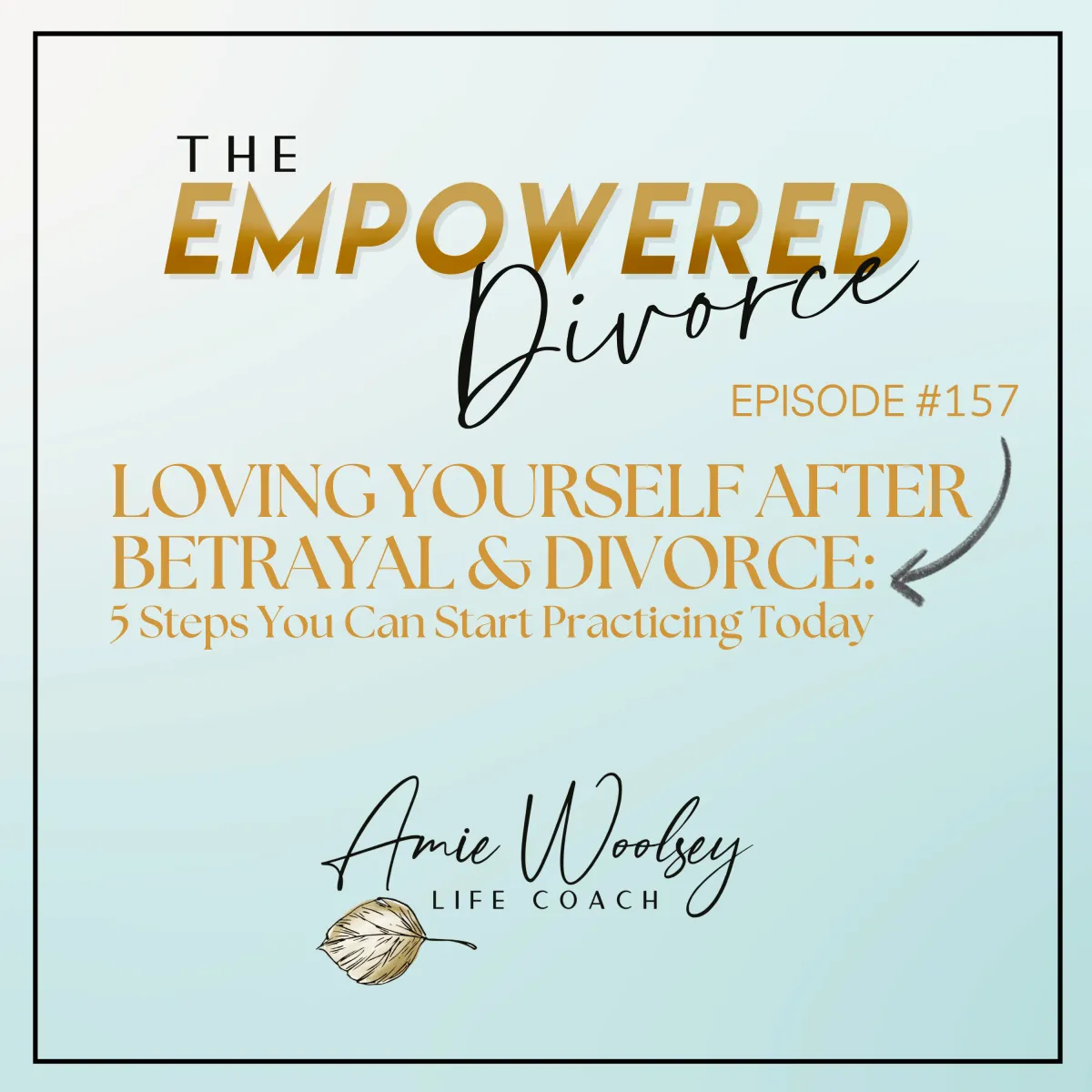
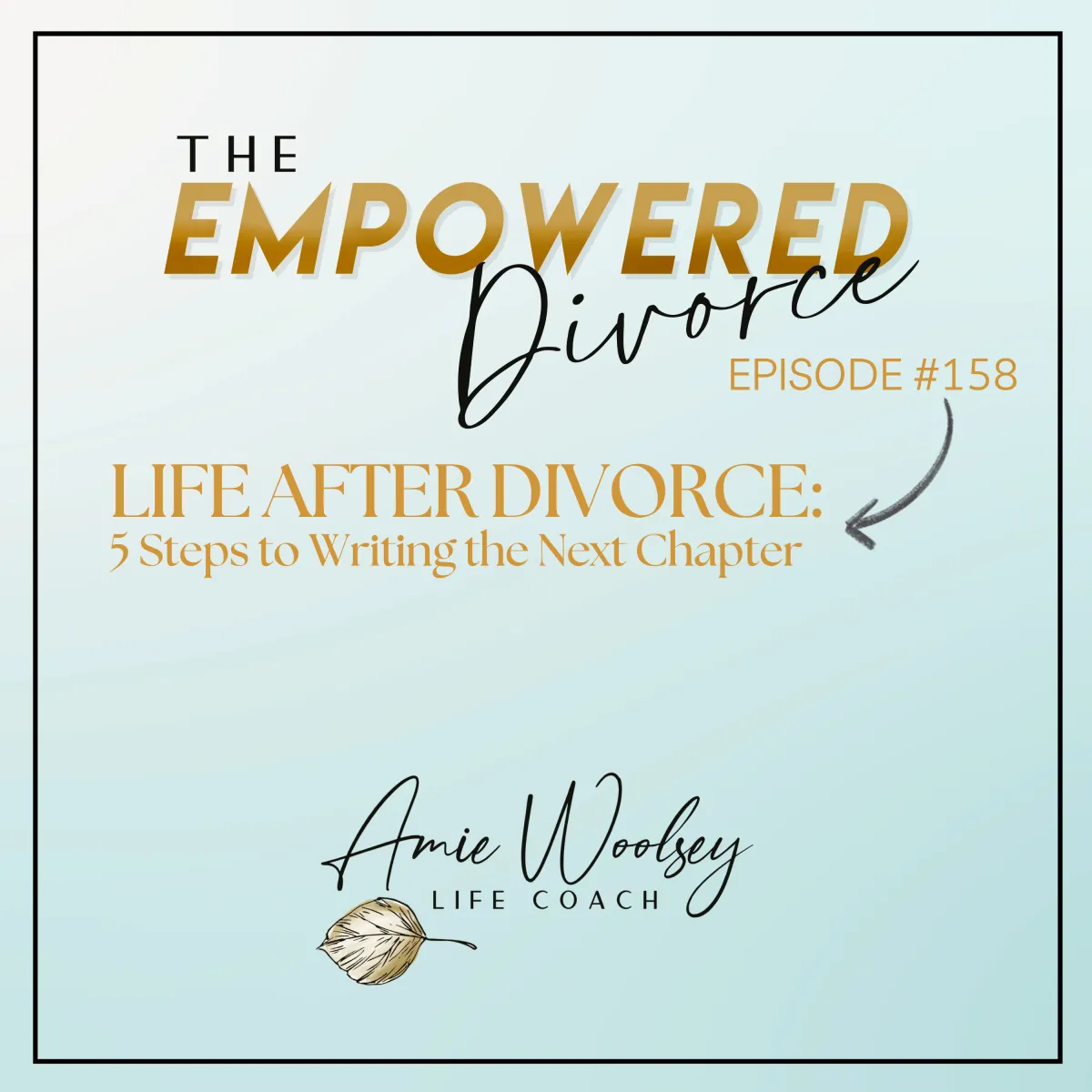
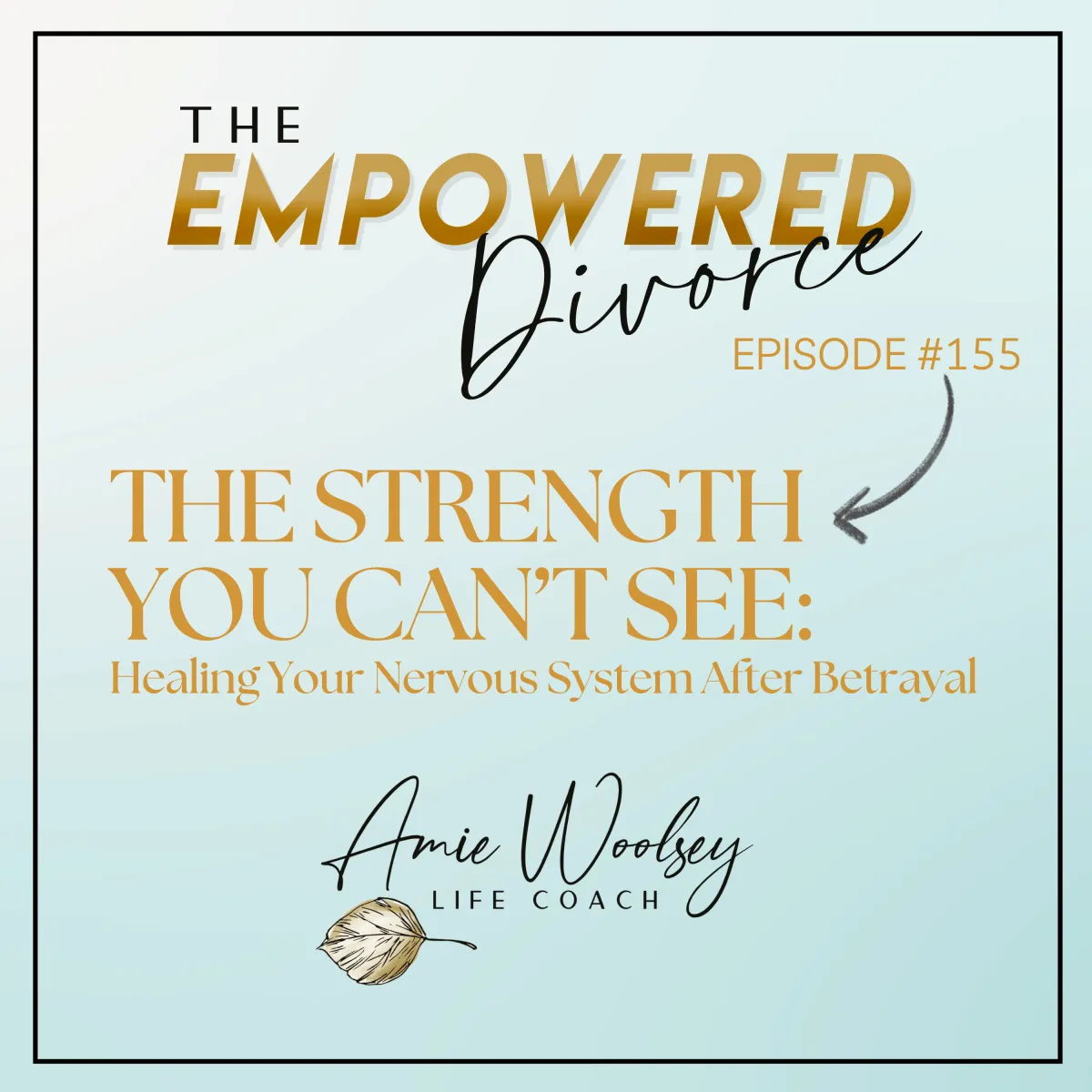
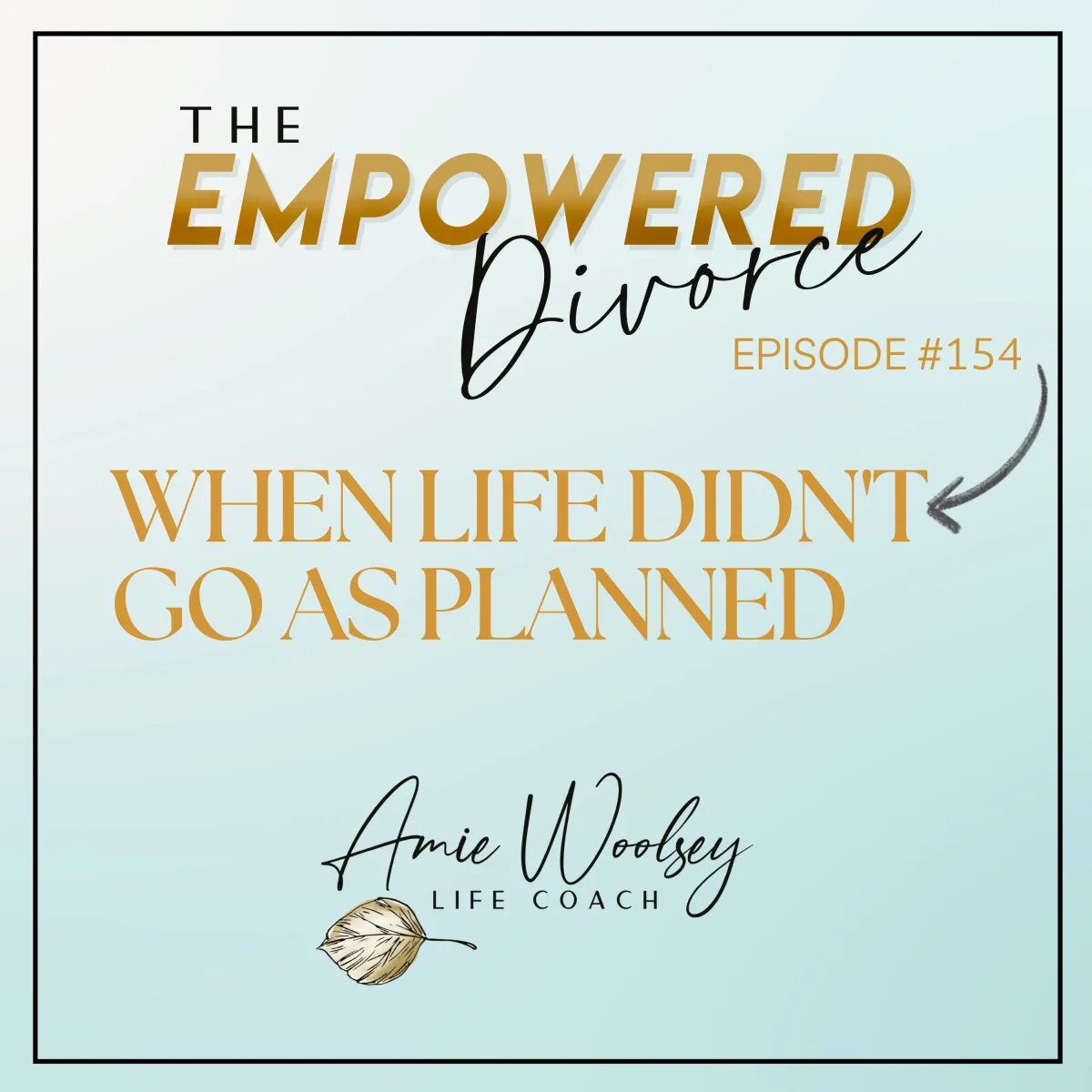
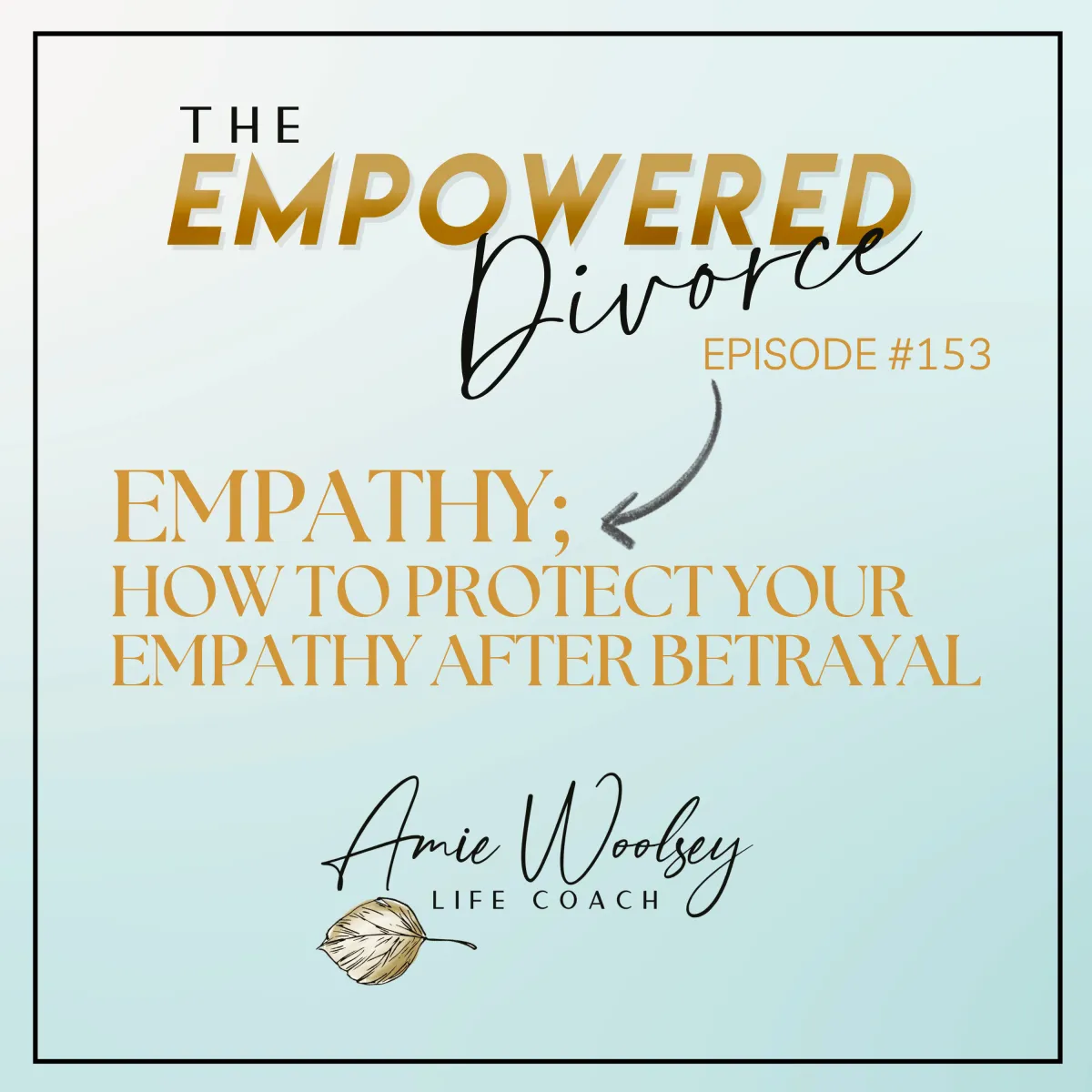
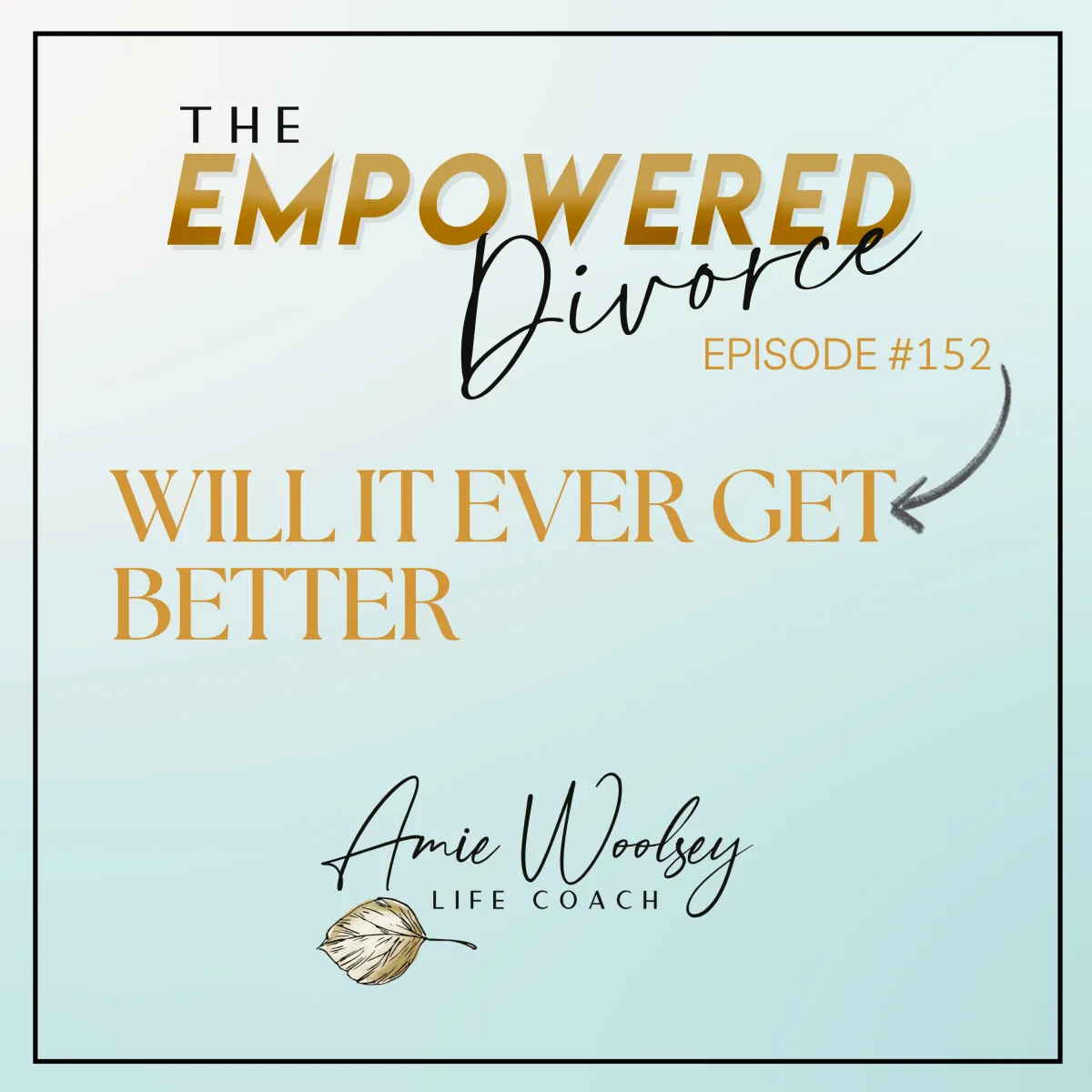
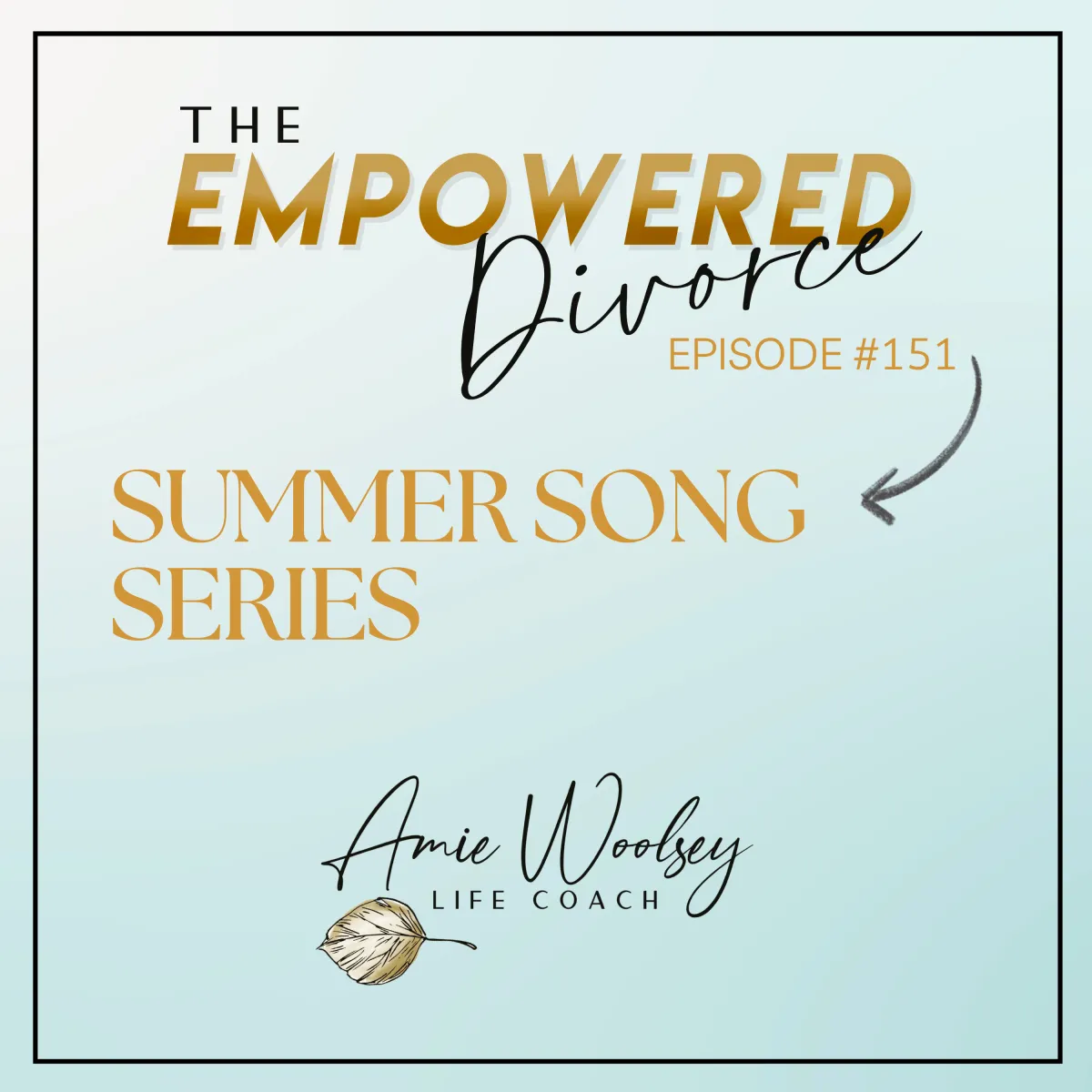
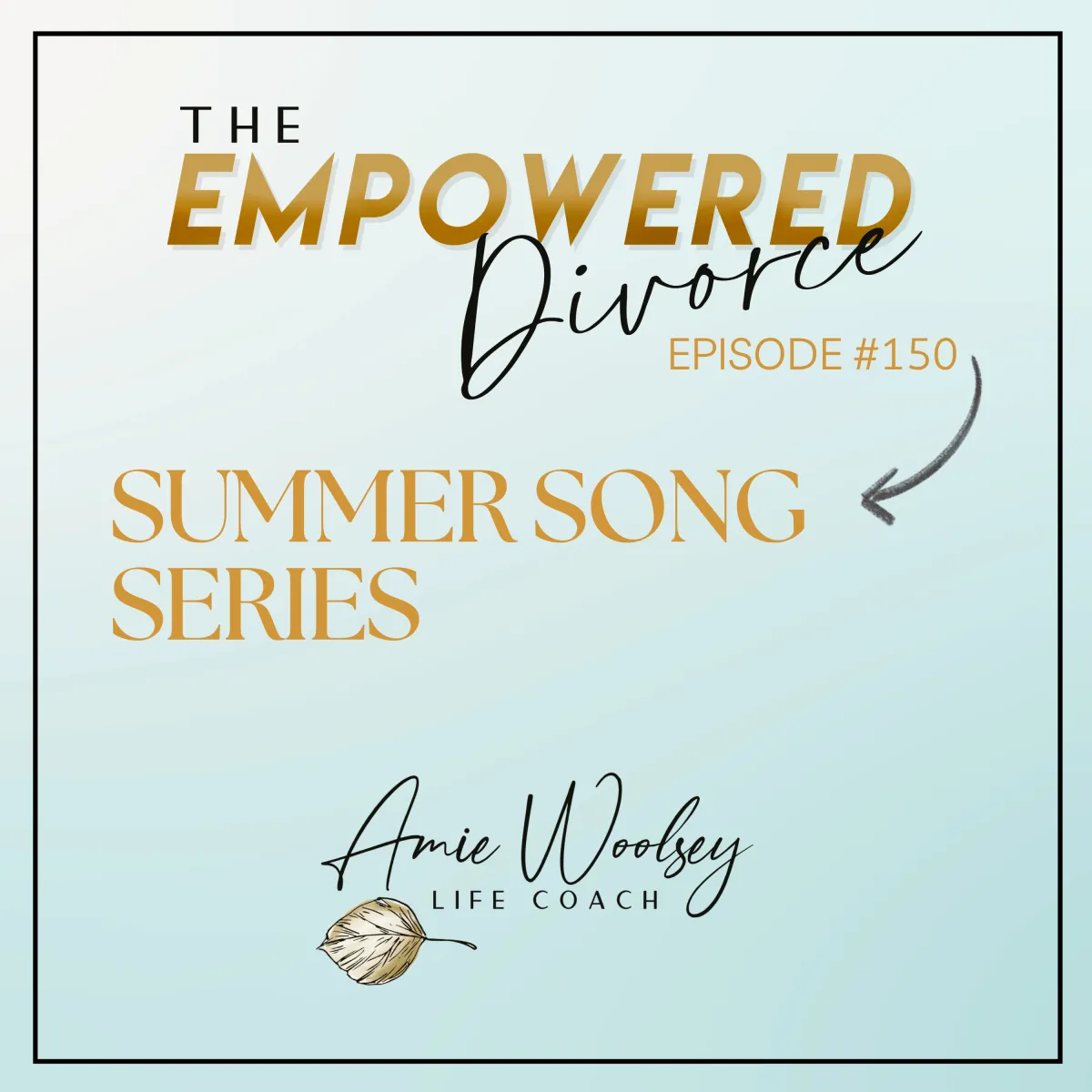
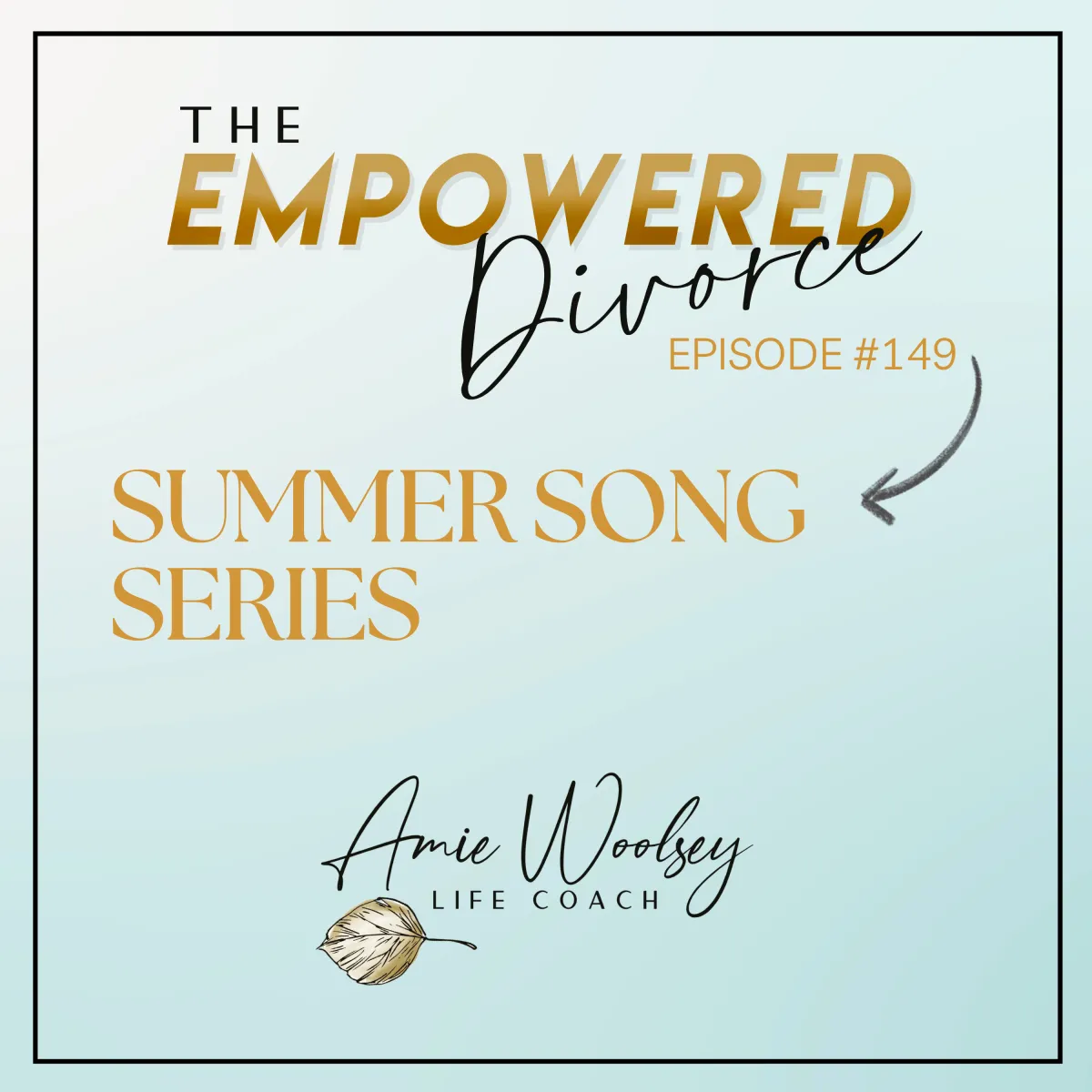
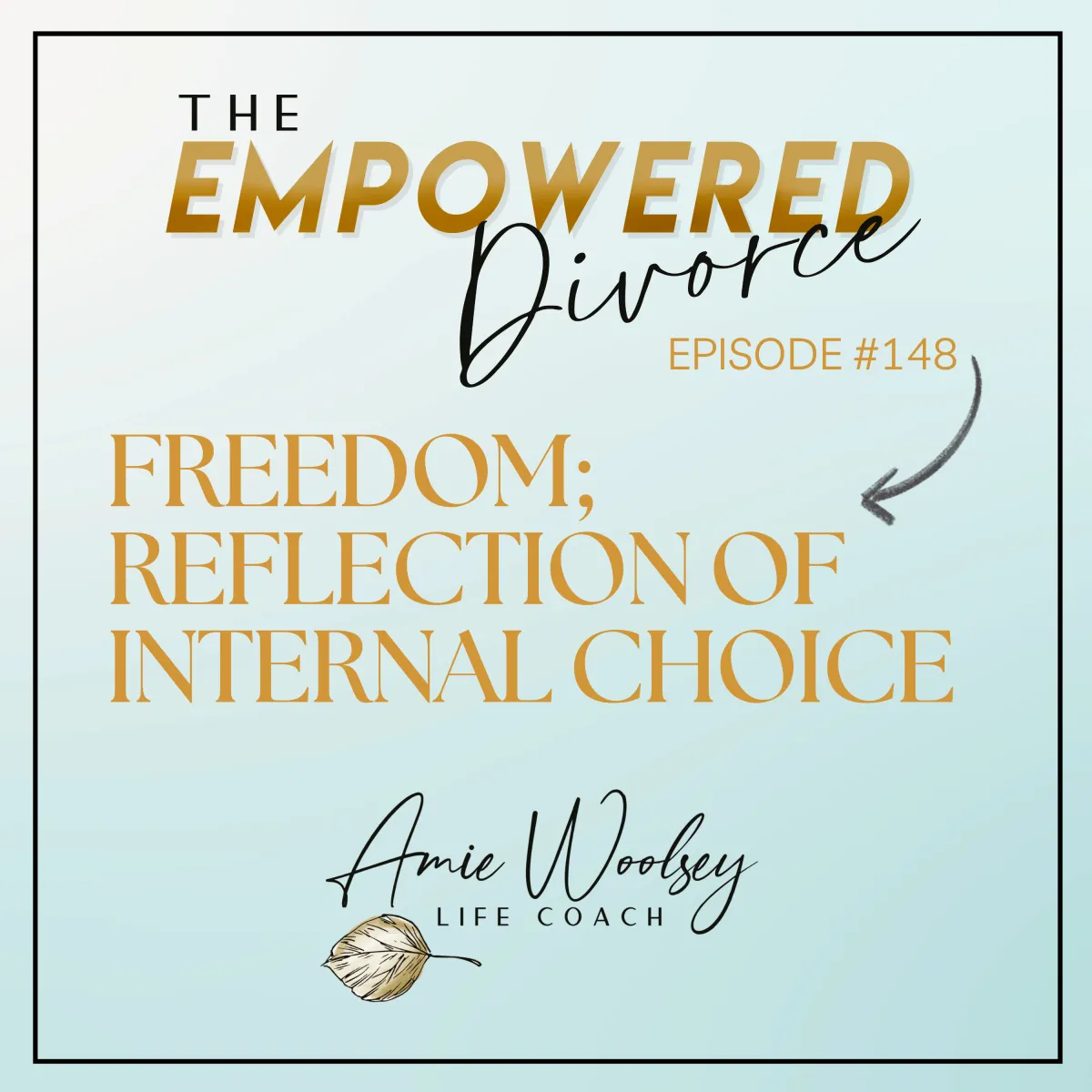
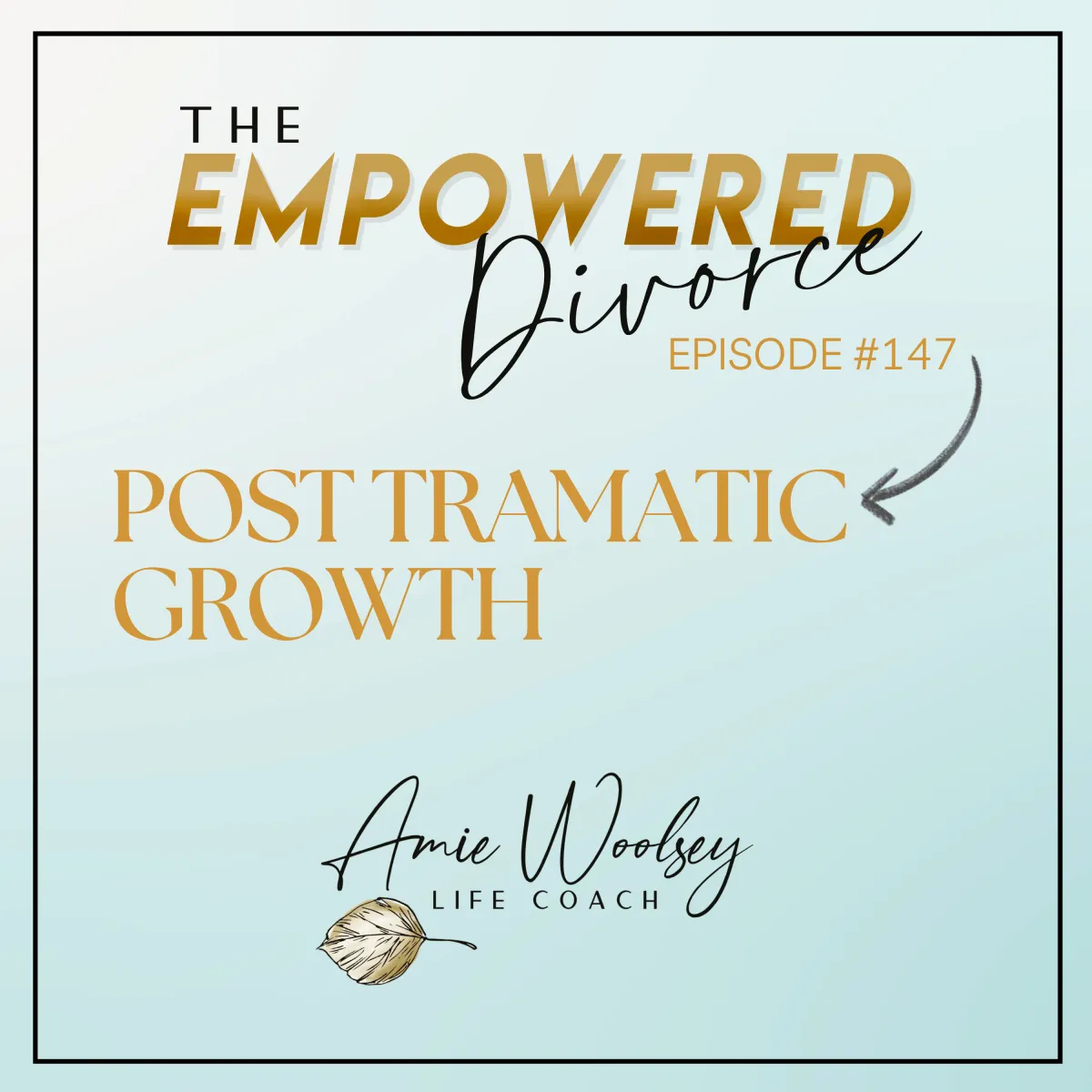
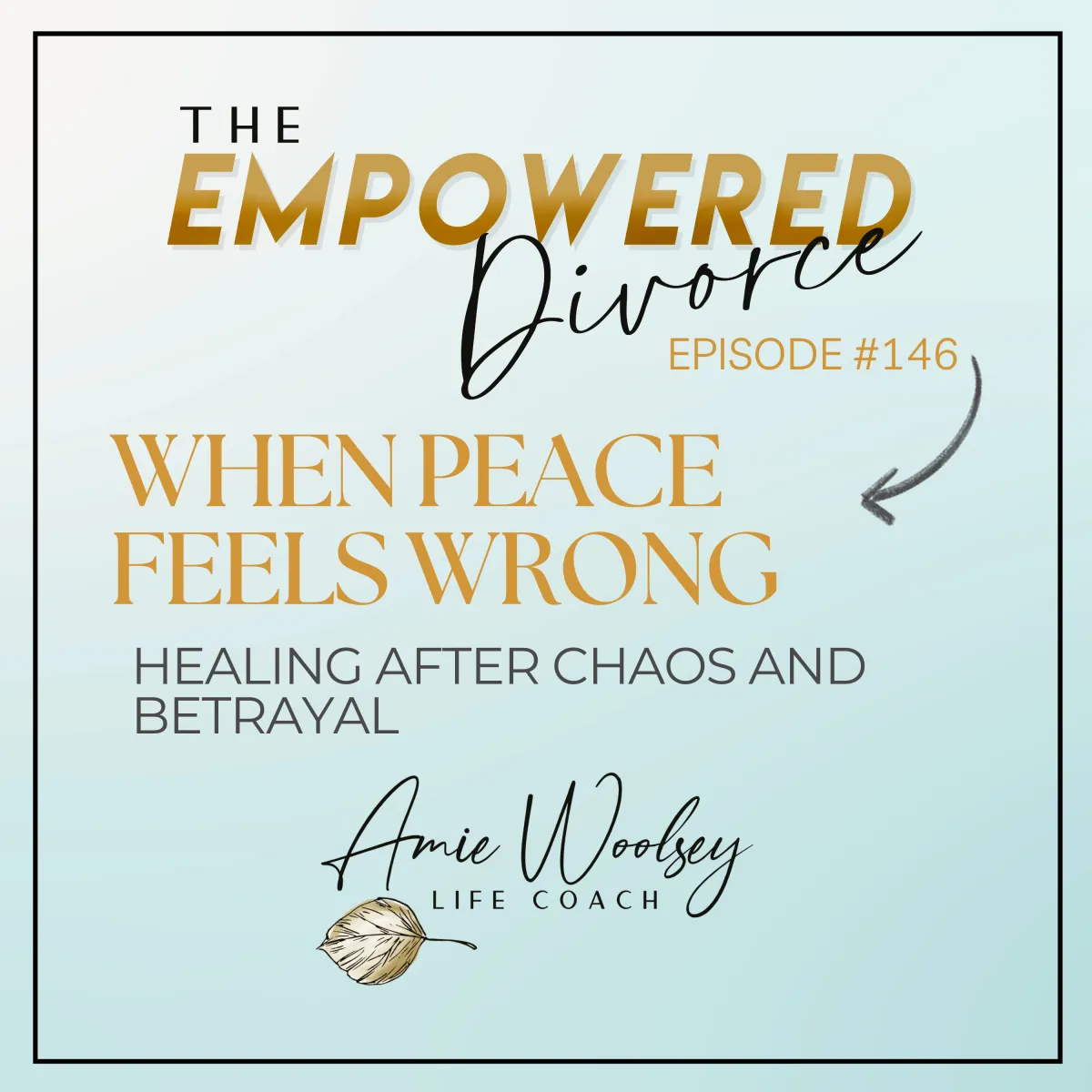
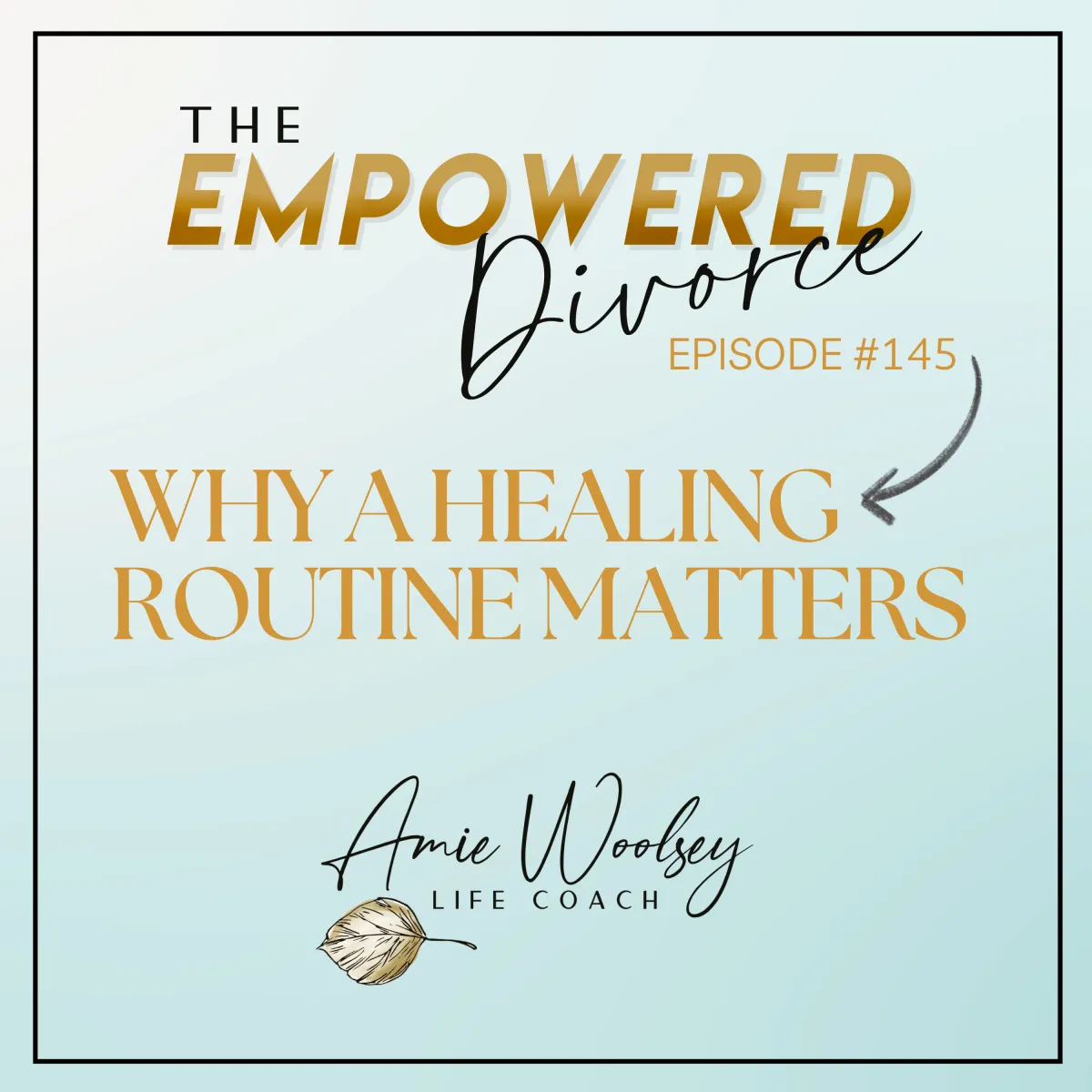
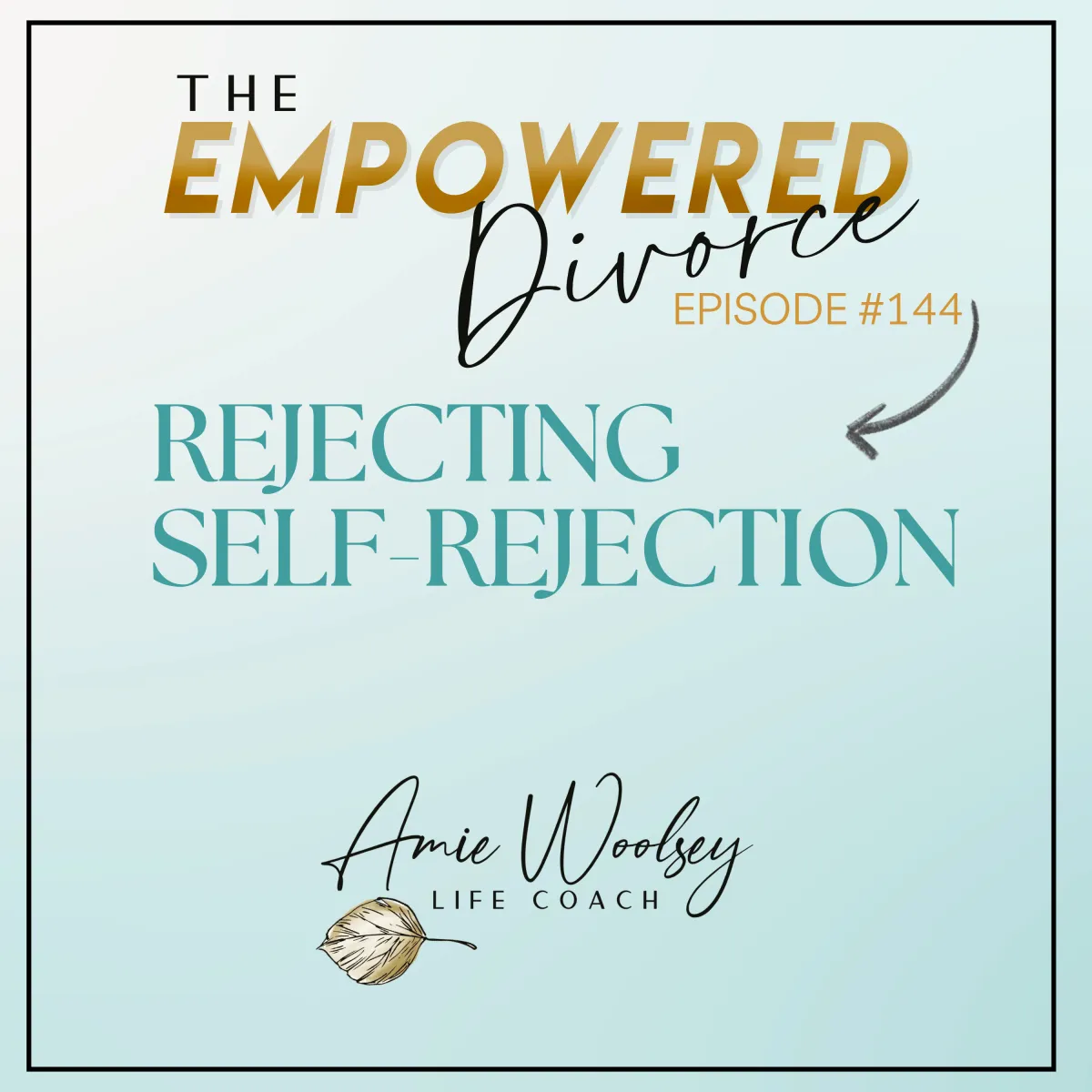
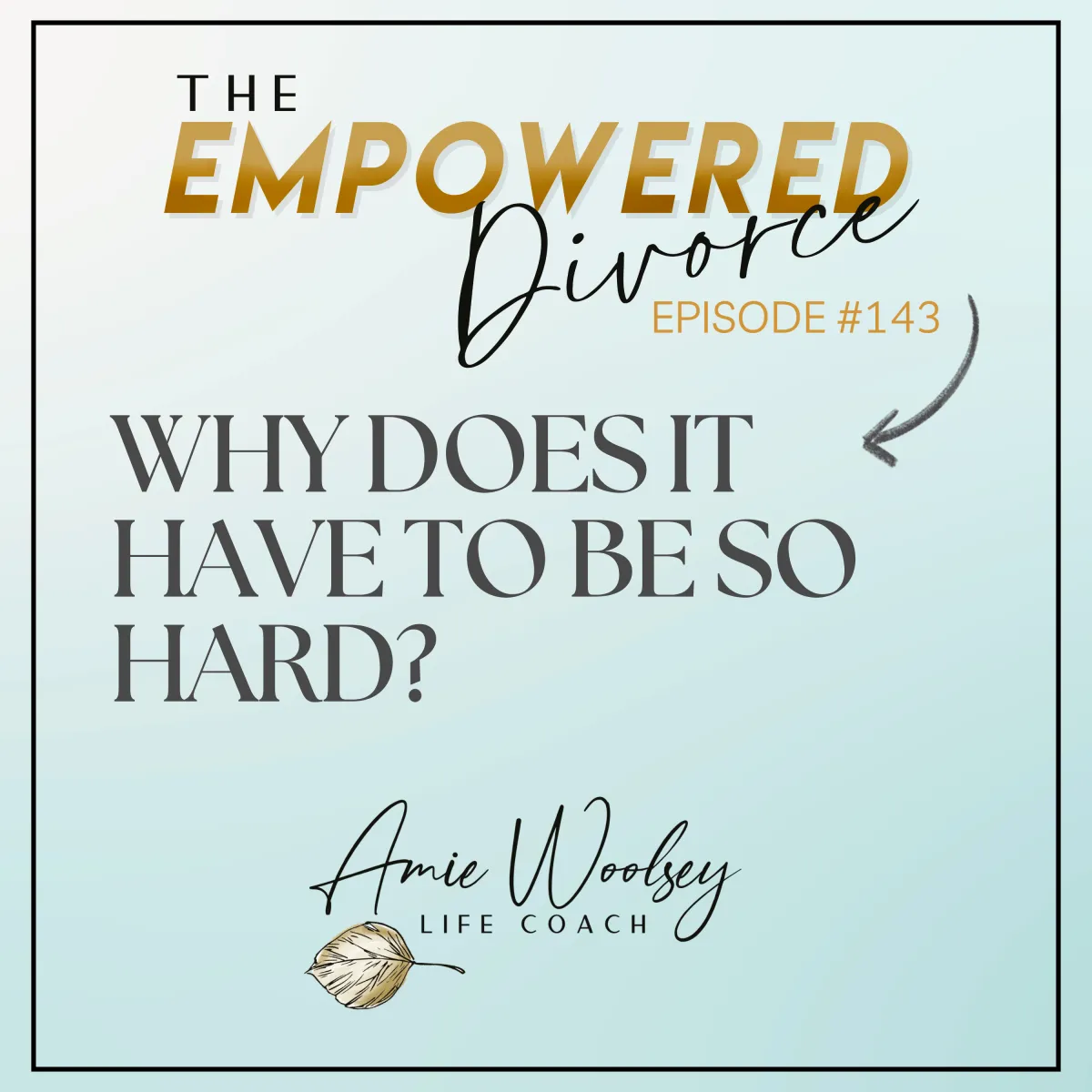
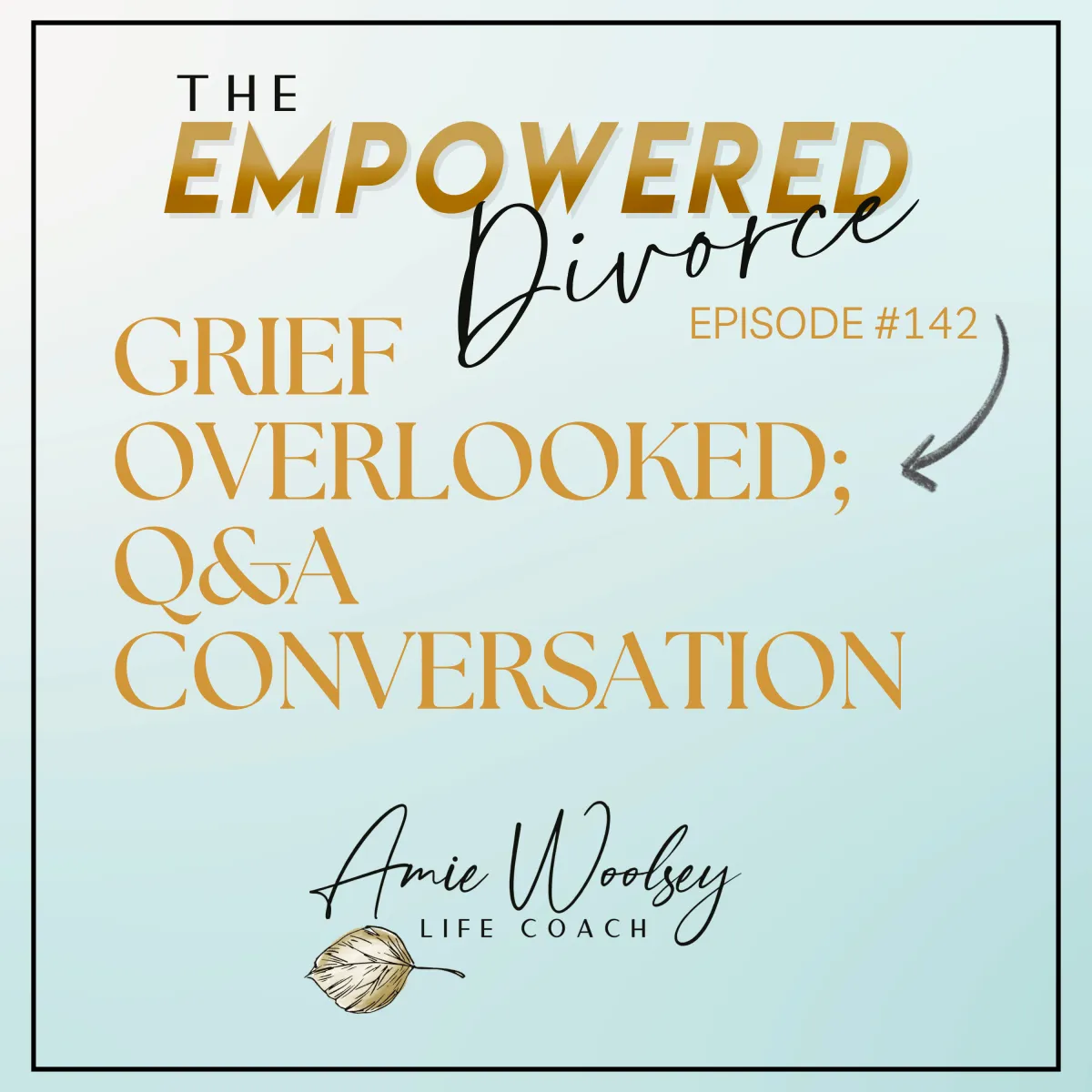
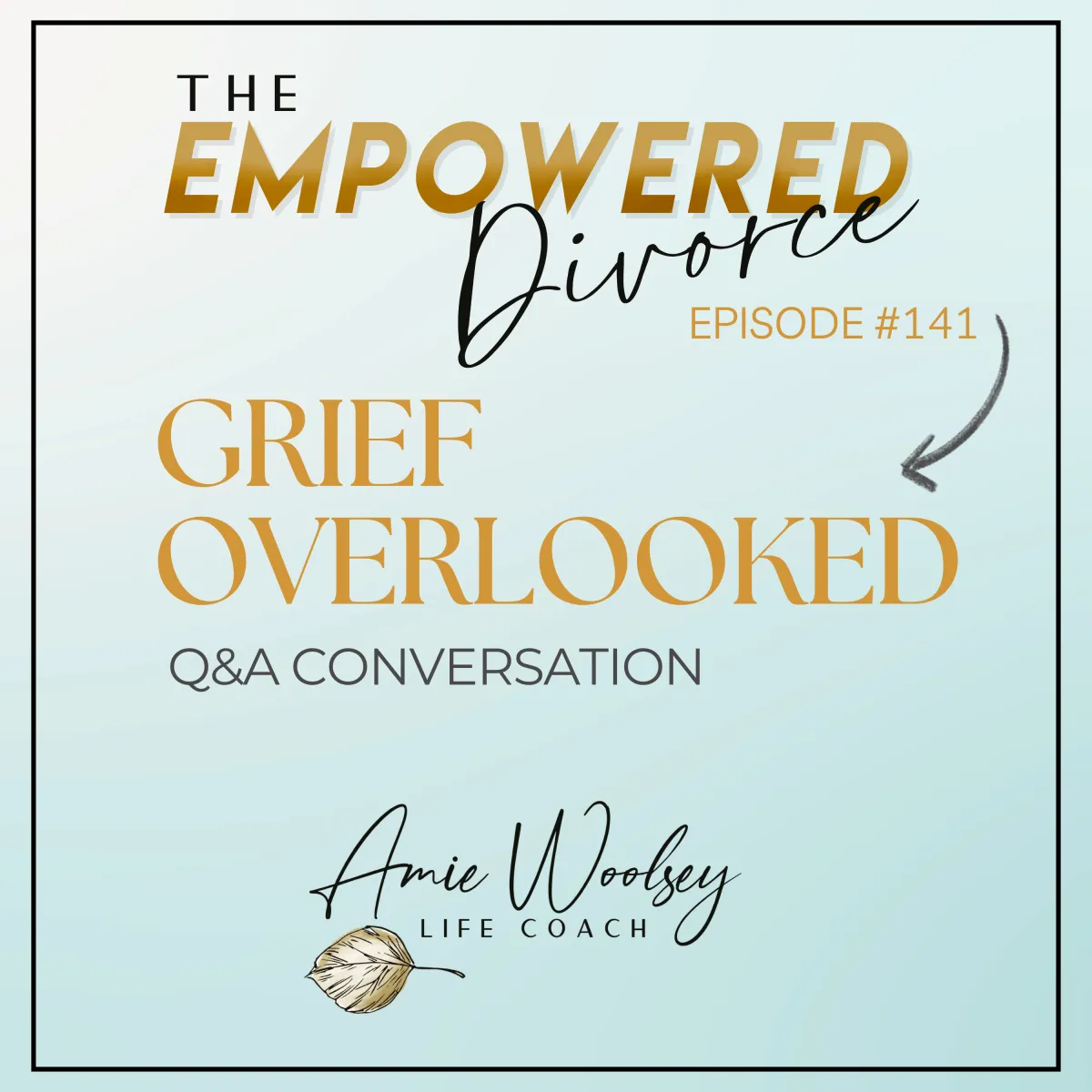
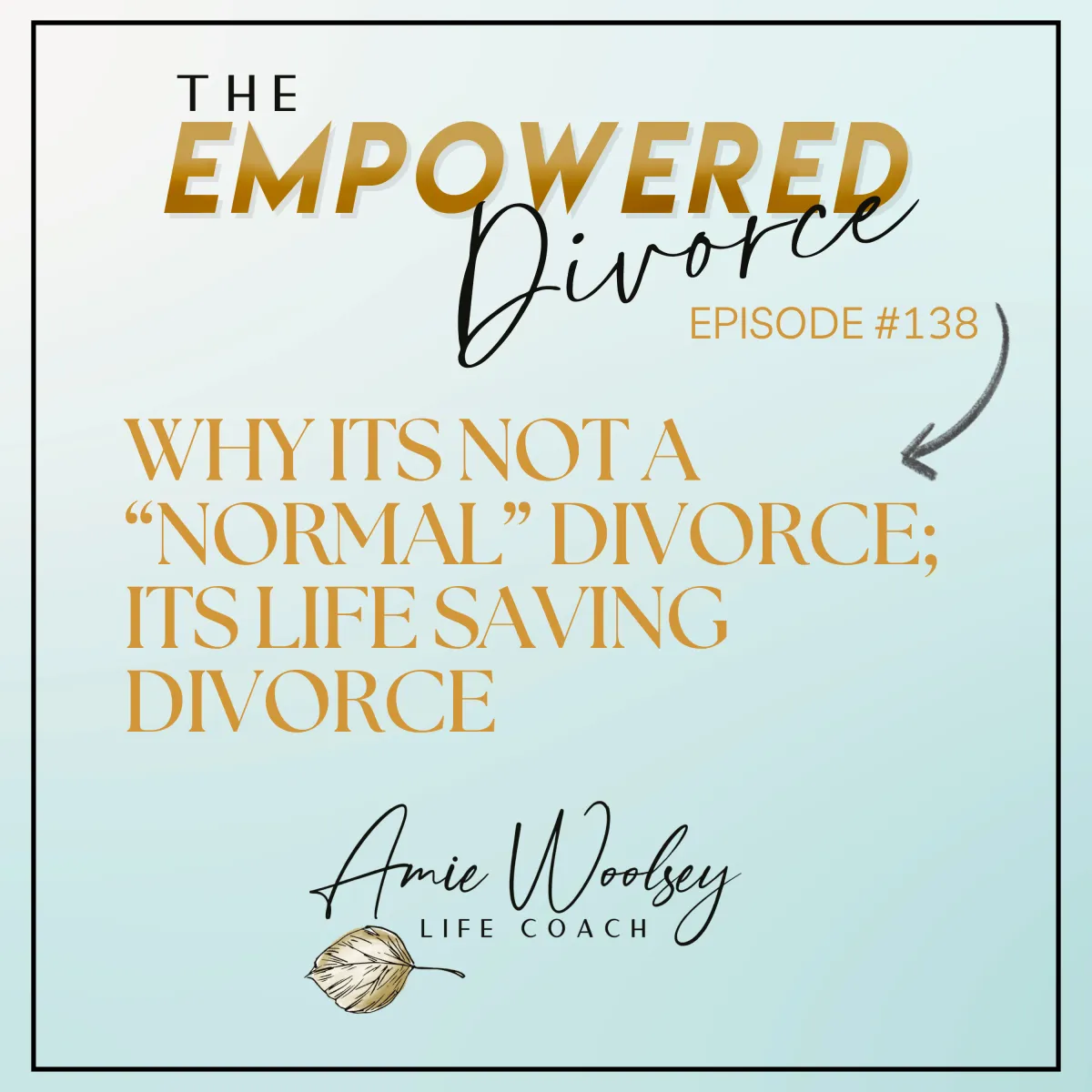
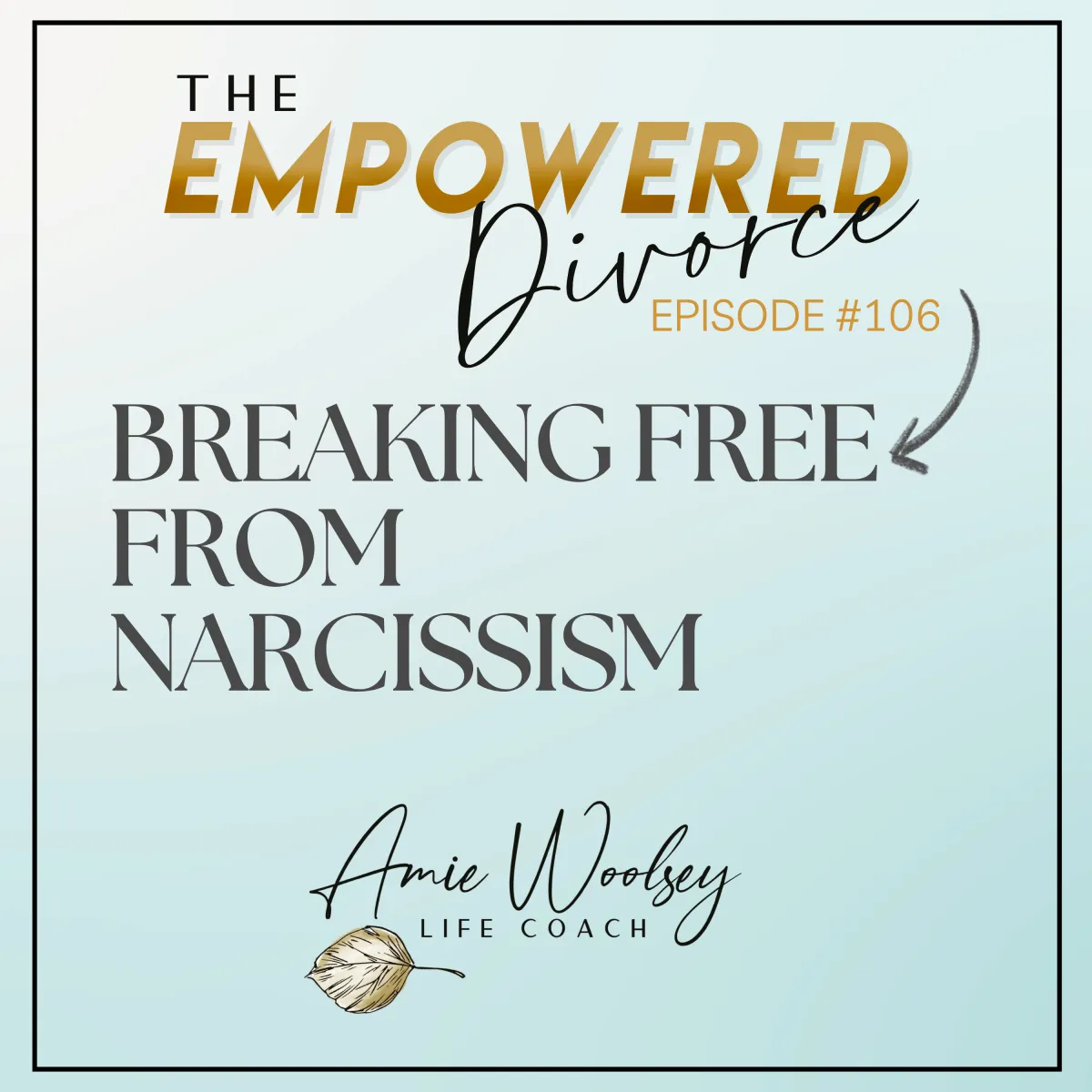
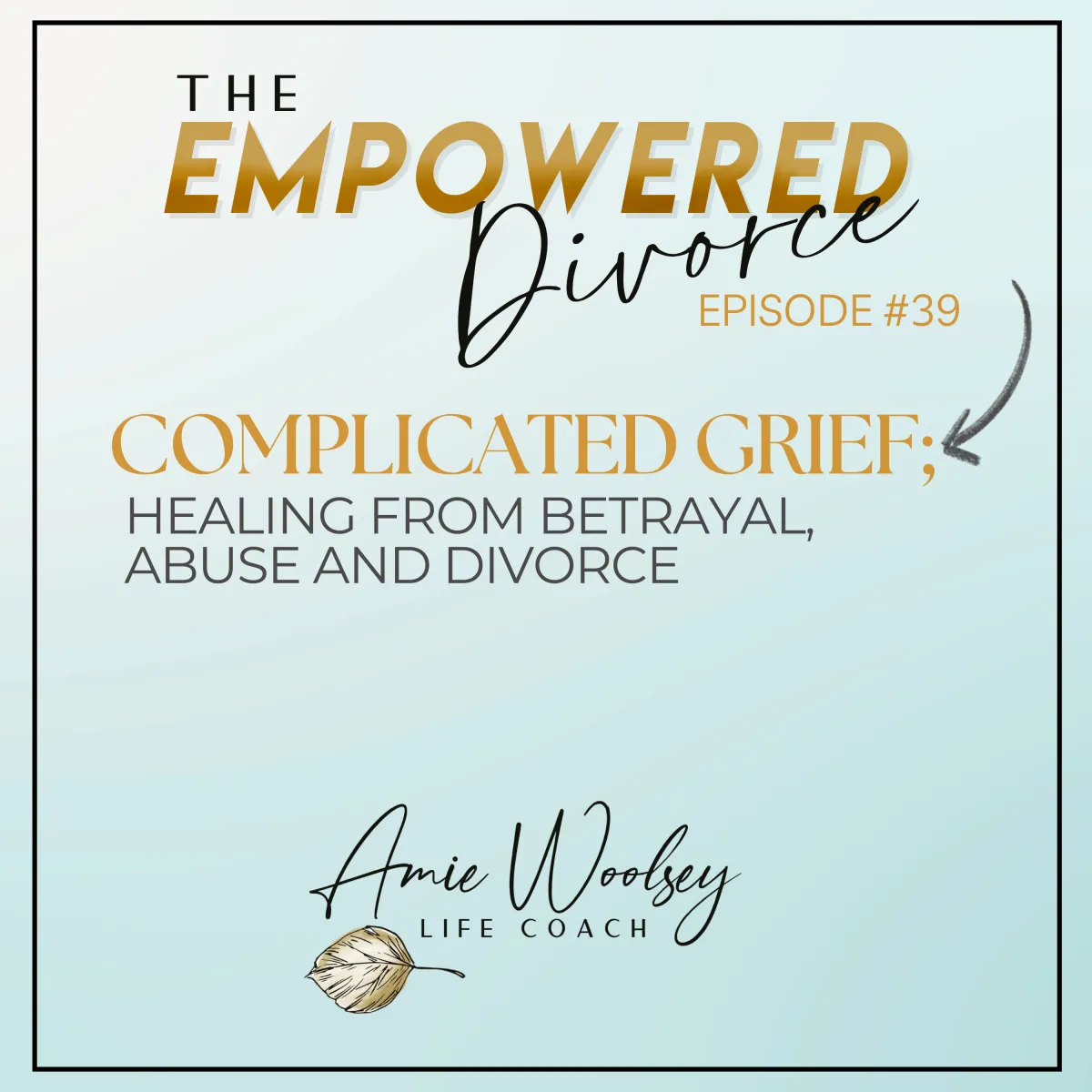
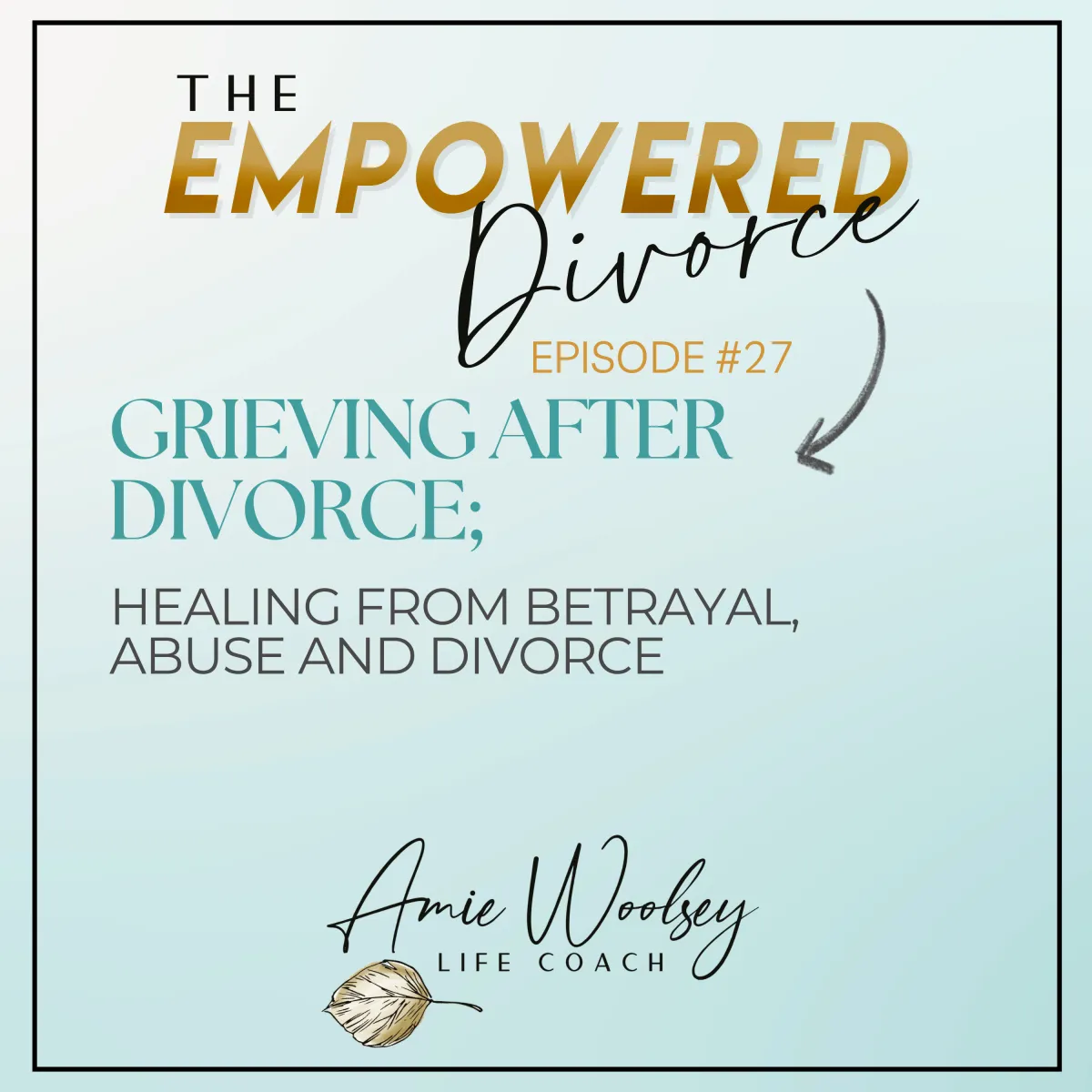
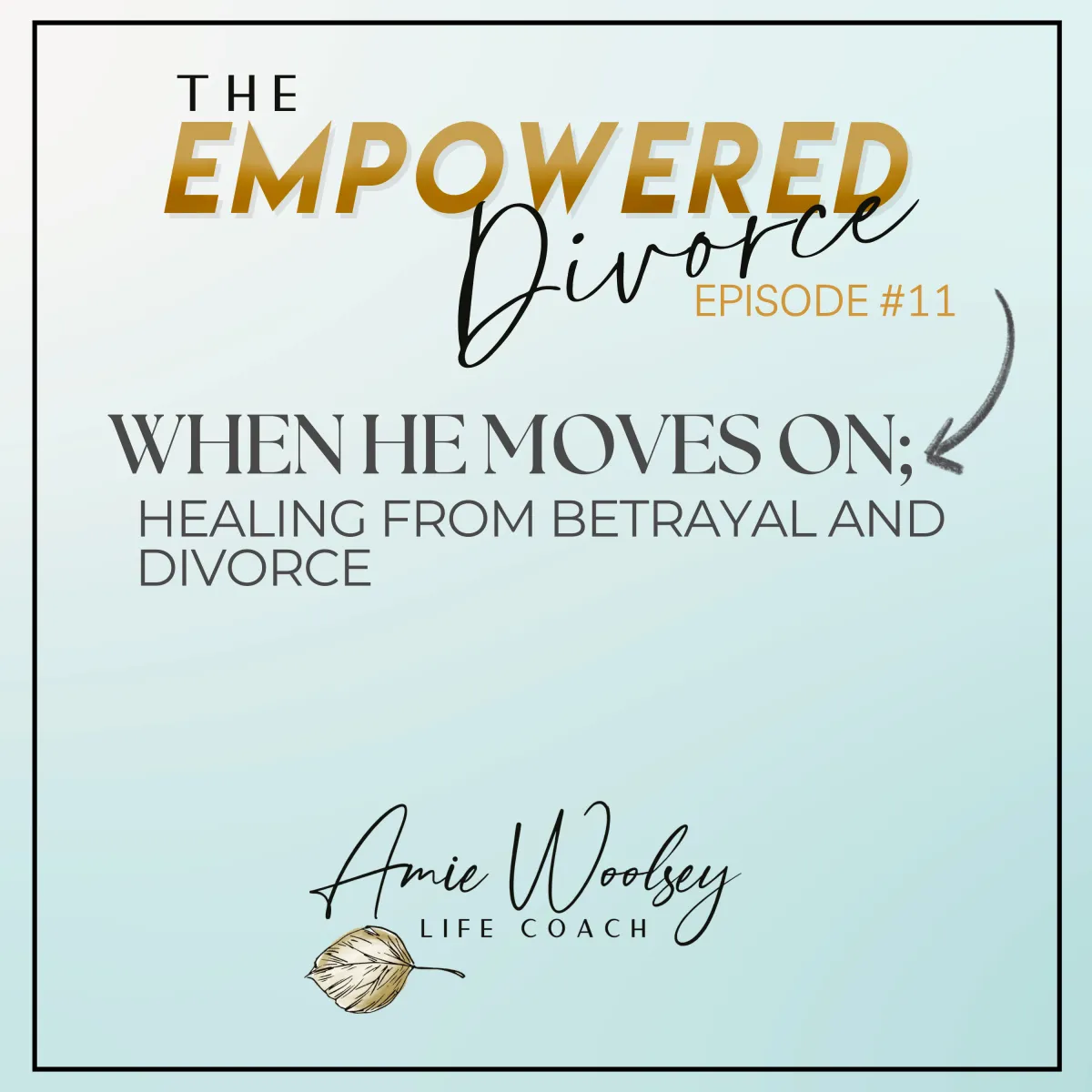
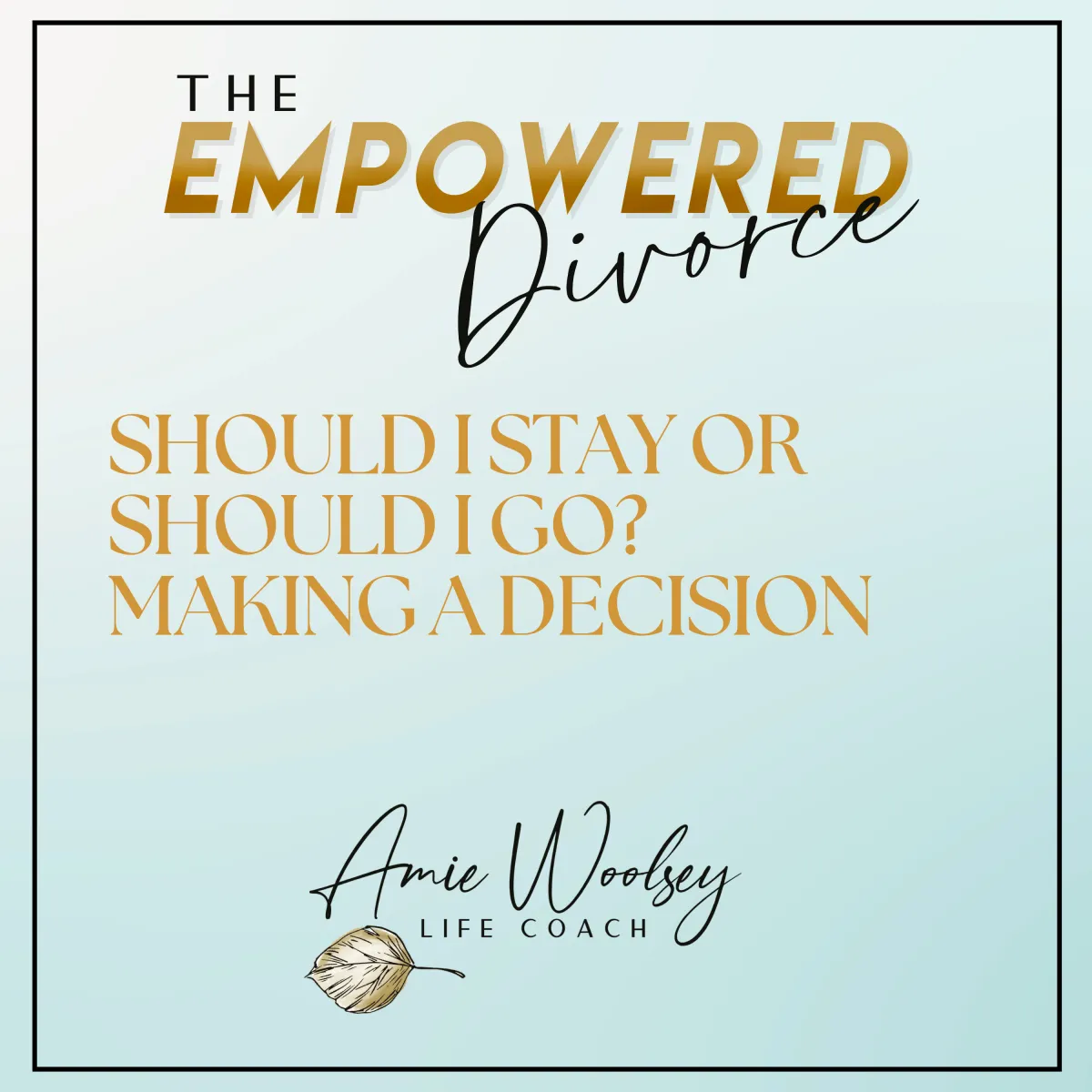
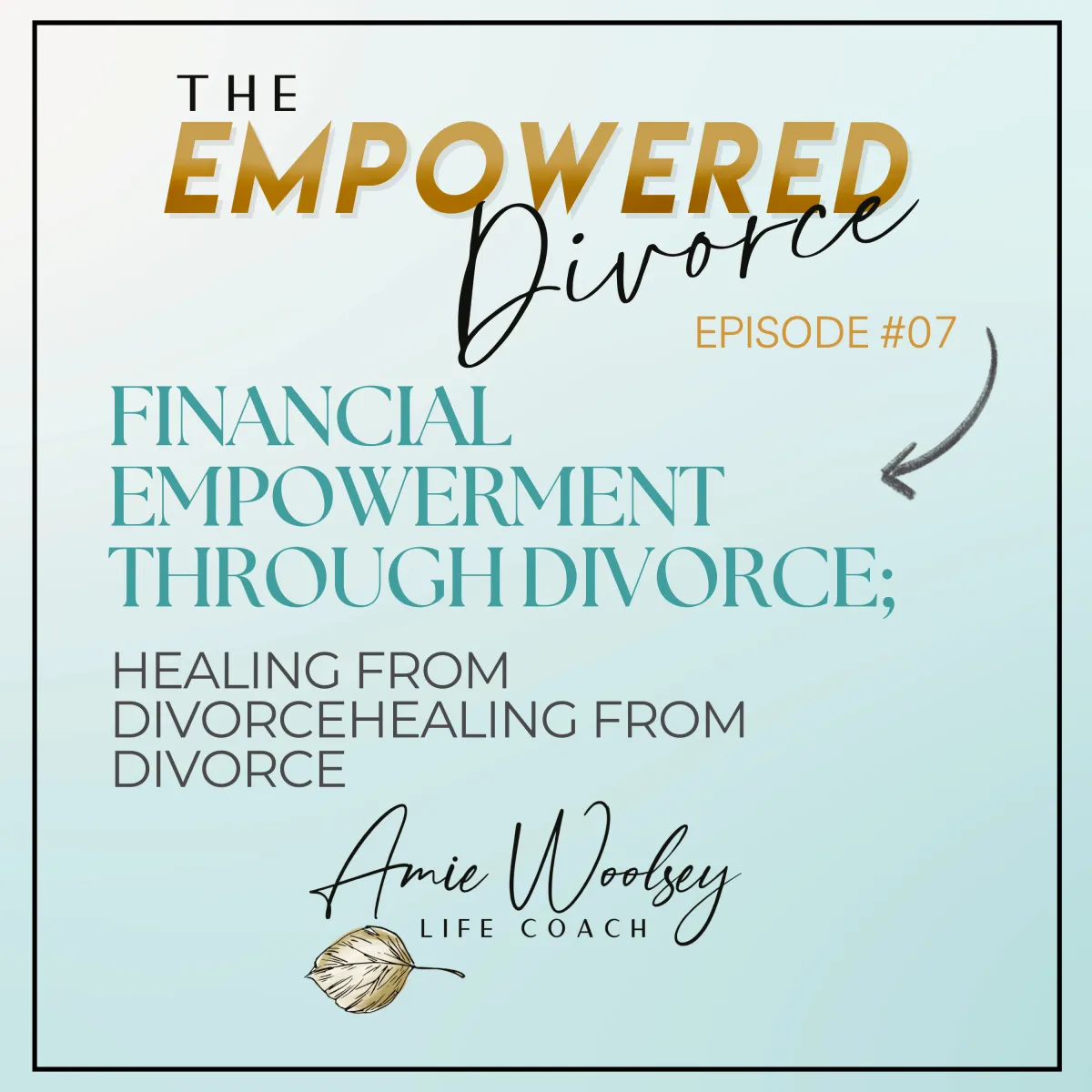
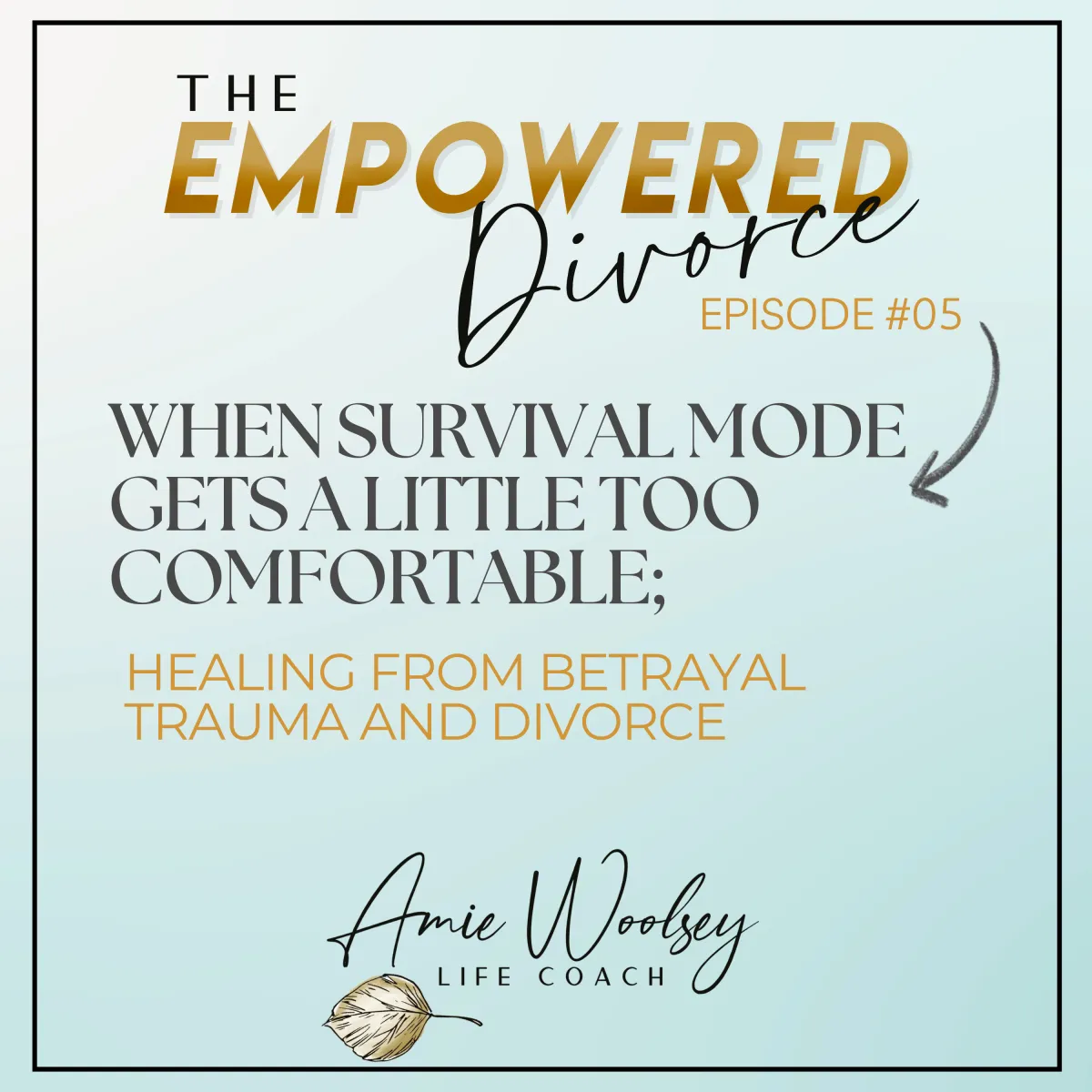
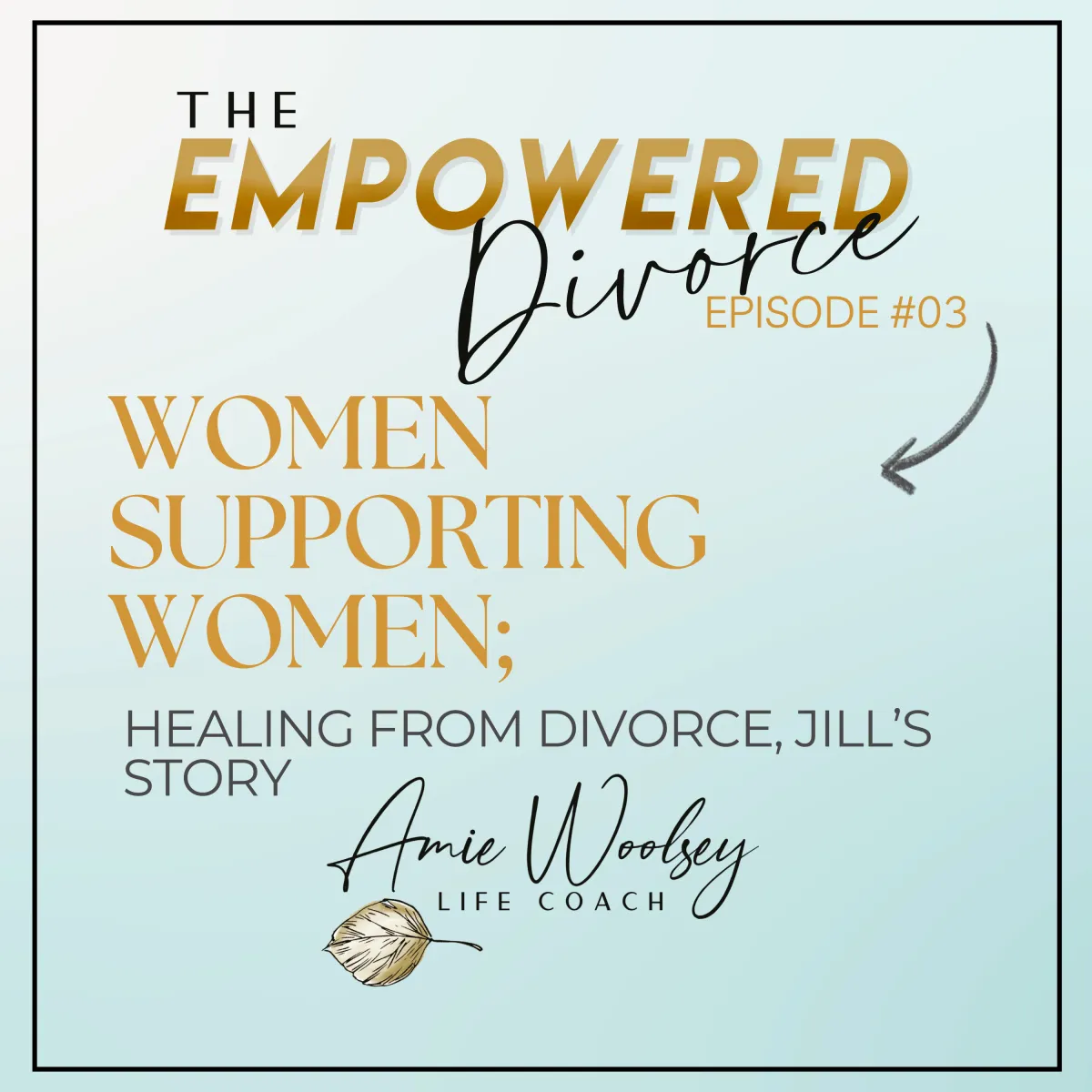
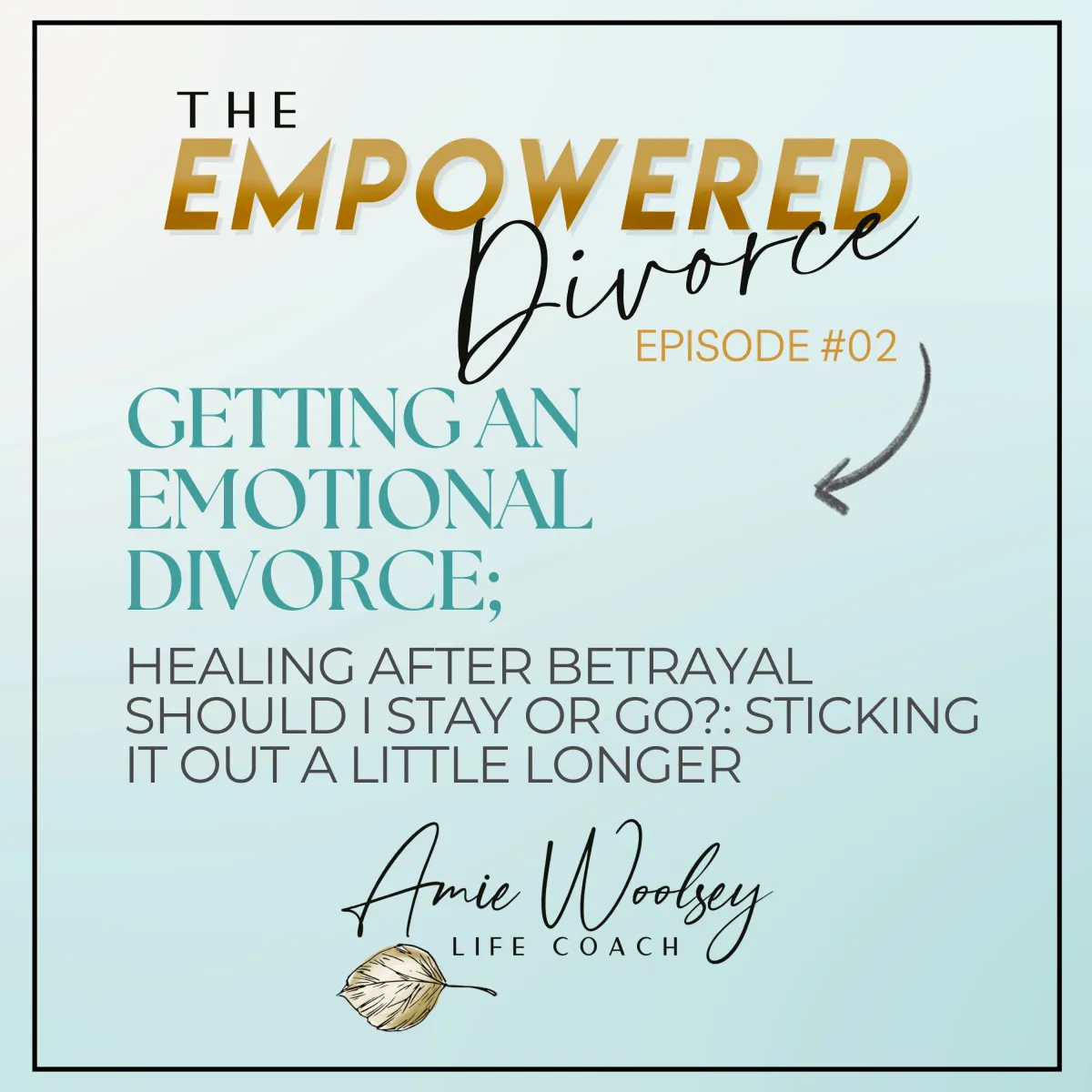
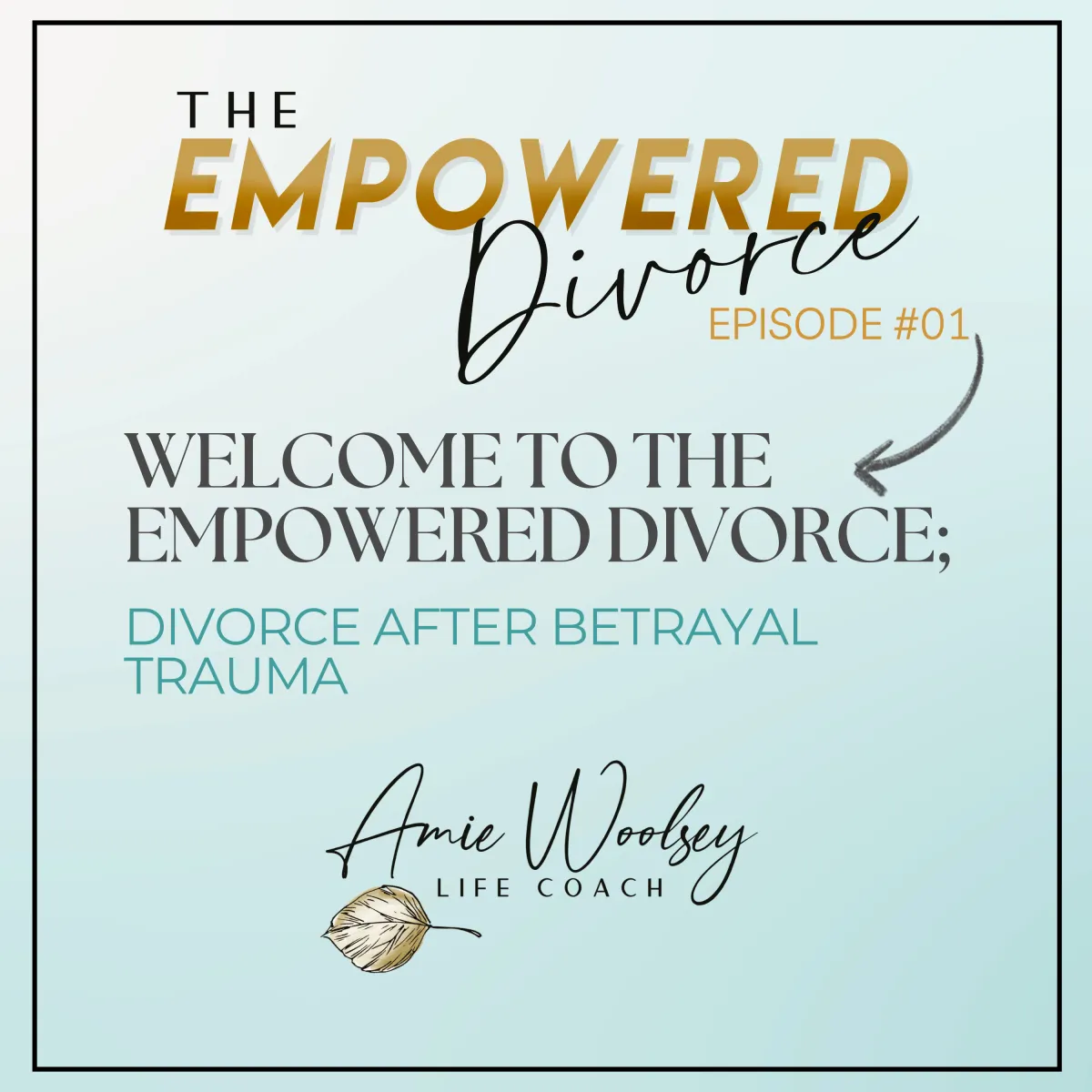





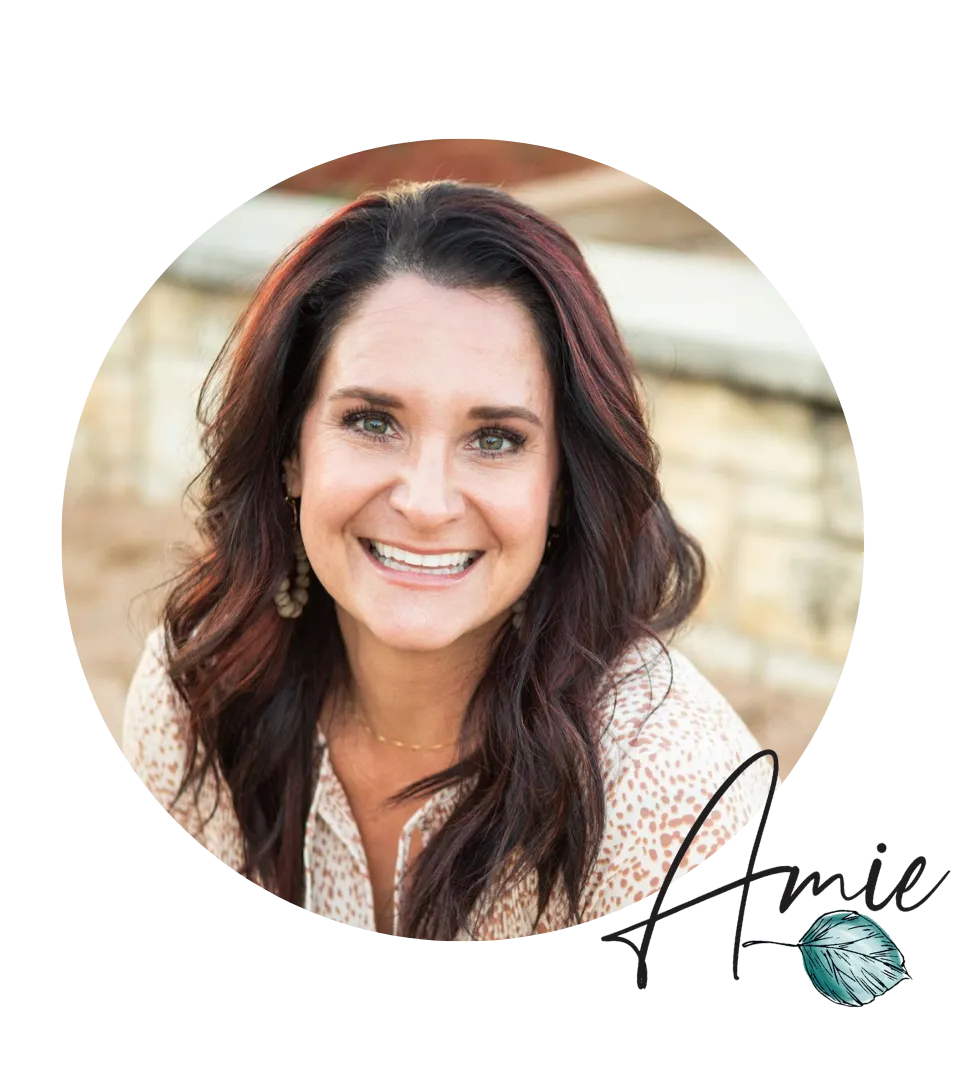
Facebook
Instagram
Youtube